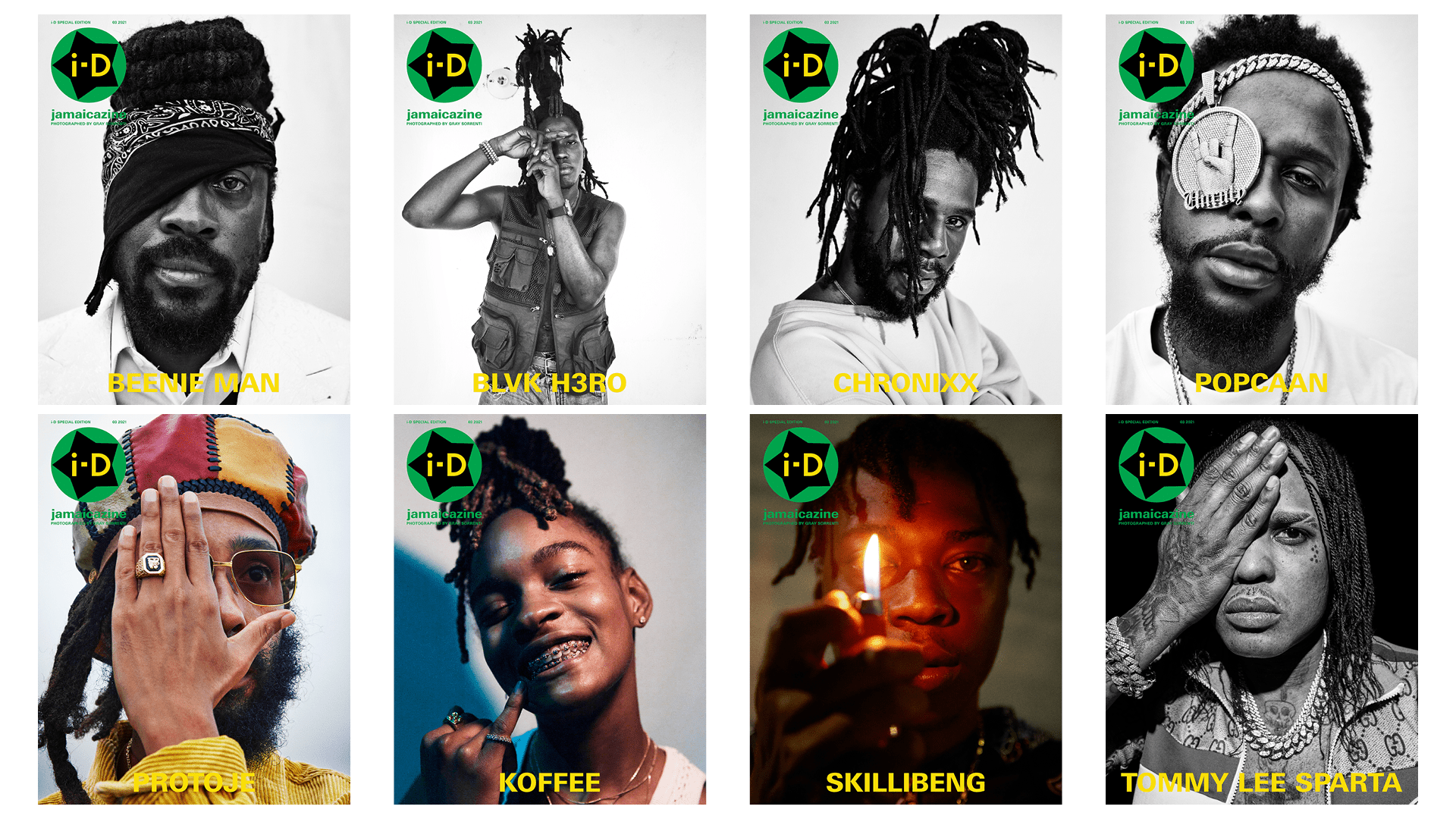In the winter of 2020, Gray Sorrenti travelled to Jamaica, a place she counts as her utopia — to see her friends, and to photograph the island’s legendary and emerging musicians for i-D. Over the next 10 days, the photographer used her iPhone 12 Pro Max to document 40 Jamaican artists. What is now i-D’s Jamaicazine would not have been possible without this beautiful country, its extraordinary people, and the technology that allowed Gray to capture their spirit.
Once you feel Jamaica and the music it’s truly hard to leave. Growing up listening to Jamaican music was something that was a part of my life. At a young age I started hunting for obscure Jamaican sounds from dance hall to dub, reggae and rocksteady. It lead me into the musical arms of Susan Cadogan, Buju Banton, Patra, Alcapone, Vybz Kartel, Mr Vegas, Shabba Ranks, Sister Nancy, Ini Kamoze, Gregory Isaacs, Lee Scratch Perry, Nora Dean, Marcia Griffiths, the list goes on and on. Going to Jamaica and photographing my favourite musical legends and new artists was a dream. My intention for this project was to bring together and celebrate the sounds of the past and present.
I got the go-ahead from the big boss at i-D. Jared and I packed our bags, got tested for Covid and set off to Kingston where we picked up my friends Froggboss, Shama, Ronald and Garren. We planned our course of action, but in reality in Jamaica things just roll, and planning is impossible. We had 10 days to photograph 40 artists from the legendary Brushy One String and Yellowman, to Koffee, Popcaan, Lilia Ike, Beenie Man, Chronixx, Ken Boothe and King Jammy. All in the midst of a pandemic, flooding, an earthquake, landslides, power and a water shortage.
I didn’t know anyone, and I didn’t know if anyone wanted to know me, but from one moment to the next, we were in the presence of some of Jamaica’s most beautiful sounds. We met on corners, car parks, mountains, we ran from here to there and back again from one side of Jamaica to the other. We met Koffee on the side of the road and spent the day with Yellow Man at his home. He told us his life story, blew our minds away and made us do a few exercises. I’ve never seen a stronger man in my life. Brushy One String sent my heart pumping as he sang lullabies to me and told me about the aliens he encountered. We smoked cigarettes with the one and only Tommy Lee Sparta and Skillibeng brought me into his world; I met his friends and listened to his music on a large speaker blasting through the street. Everyday was something completely different and magical.
But in the night, after our long day, feeling sweaty, itchy and inspired we dodged the Bull Bay traffic and came home to Mr. Kevin who felt like family. I feel truly blessed and thankful to have been invited into each and everyone’s lives and homes. These people changed my life, and entered my soul. One love to all the Jamaican artists who make life worth living through their sweet music.
Jamaica, always in my heart.
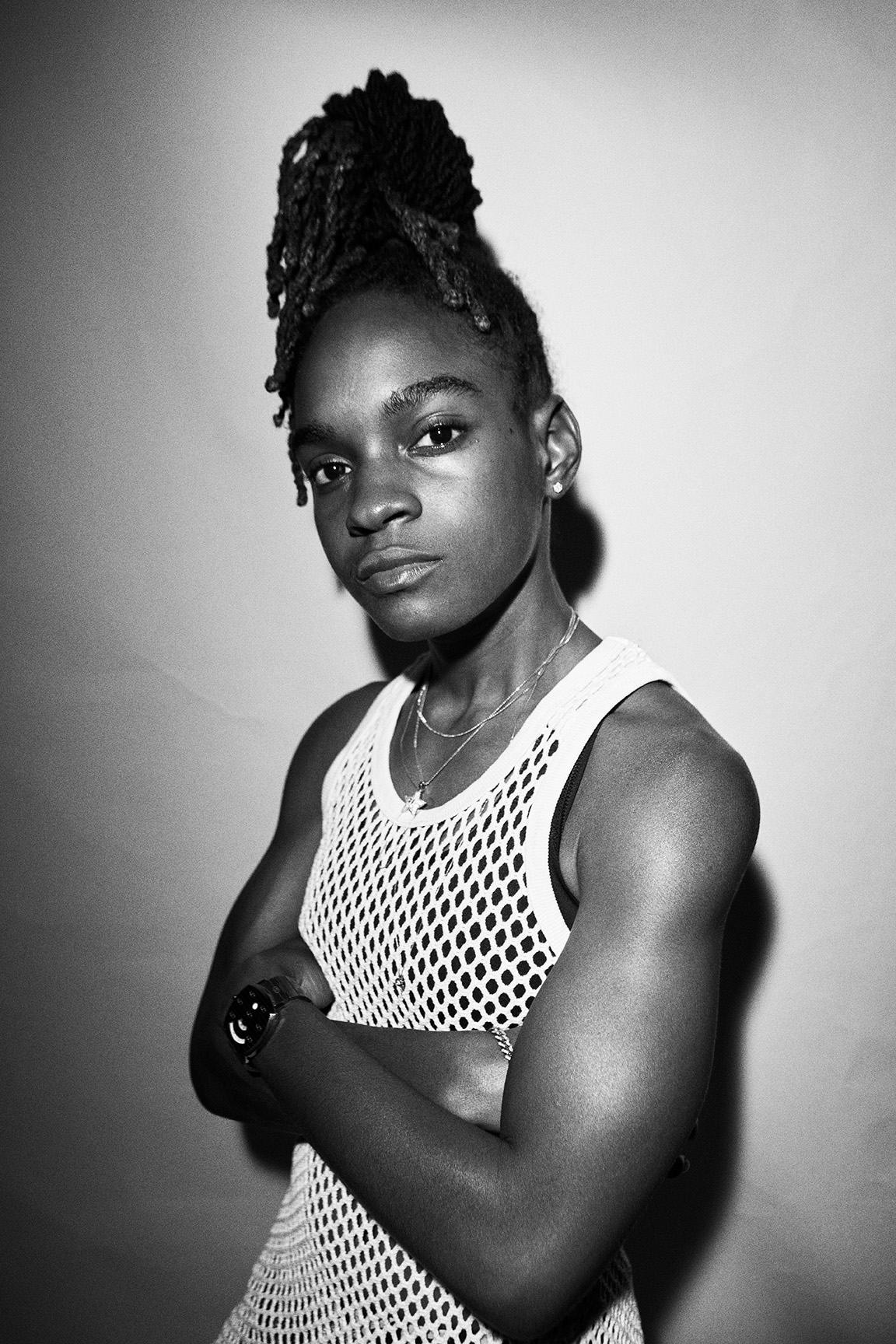
Koffee
Where did you grow up and how do you think it shaped you? I grew up in Spanish Town, it was my whole little world. Culturally, everything I know came from there – school, church, music. When someone asks you what kind of music you make, what do you tell them? I make reggae music because my inspiration comes from reggae music. All my inspiration is firstly reggae music. How would you describe the music scene in Jamaica right now? Very, very alive. Very promising. How has 2020 influenced your work and your creative process? Positively. It’s been a rough year, and my heart goes out to everyone man. Before 2020, I was all over the place, so I’ve just been tuning in to work, spending time my family. What do you think you learned this year, actually? It’s good to be there for people when you can. In your opinion, how has the sound of Jamaica evolved over your lifetime? The sound evolves with the times. The message speaks to the times. So even if the sound is nostalgic, or the message is nostalgic, or it resonates with an older era, the vibe is always now. What’s the best thing about Jamaica? Its beauty. Going to the beach. Looking over the green mountains. The sea complements the sky. It’s a beautiful place, man. The landscape and the people.
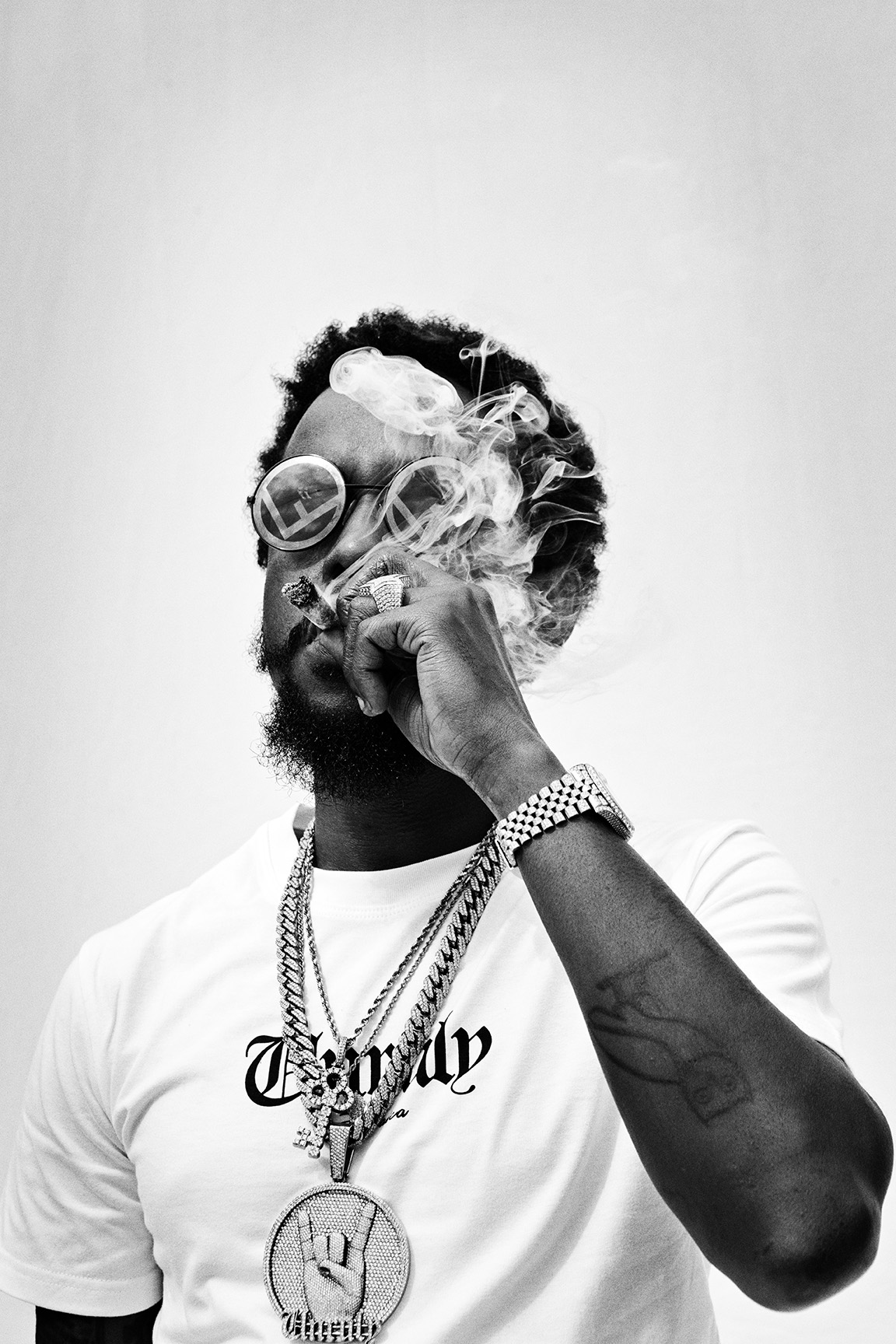
Popcaan
So where did you grow up and how do you think it shaped you? I grew up in Saint Thomas on the east side of Jamaica for the first stages of my life and then I moved to Portmore, Saint Catherine. I used to go to a bad primary school and it wasn’t easy growing up. It was a struggle, you know, but I think that struggle is what shaped me to be the man I am today. How would you describe the music scene in Jamaica right now? Alive and well like always, you know? It’s actually amazing right now. More youths get famous. More sufferation and influence, innit. It’s blessed, even though it’s a bad time. What have you learned this year? I learned that it’s very easy to destroy the universe, you know? It’s very easy to get people scared, you know? A lot of people is scared right now. Losing their jobs, not earning anything. We have to just cherish what we have. Appreciate life. We should glorify life, especially in the midst of this pandemic. Because there are so many people dying. You know what I mean? Appreciate life. So, cheers to life. What’s the best thing about Jamaica? Jamaica is the best thing.
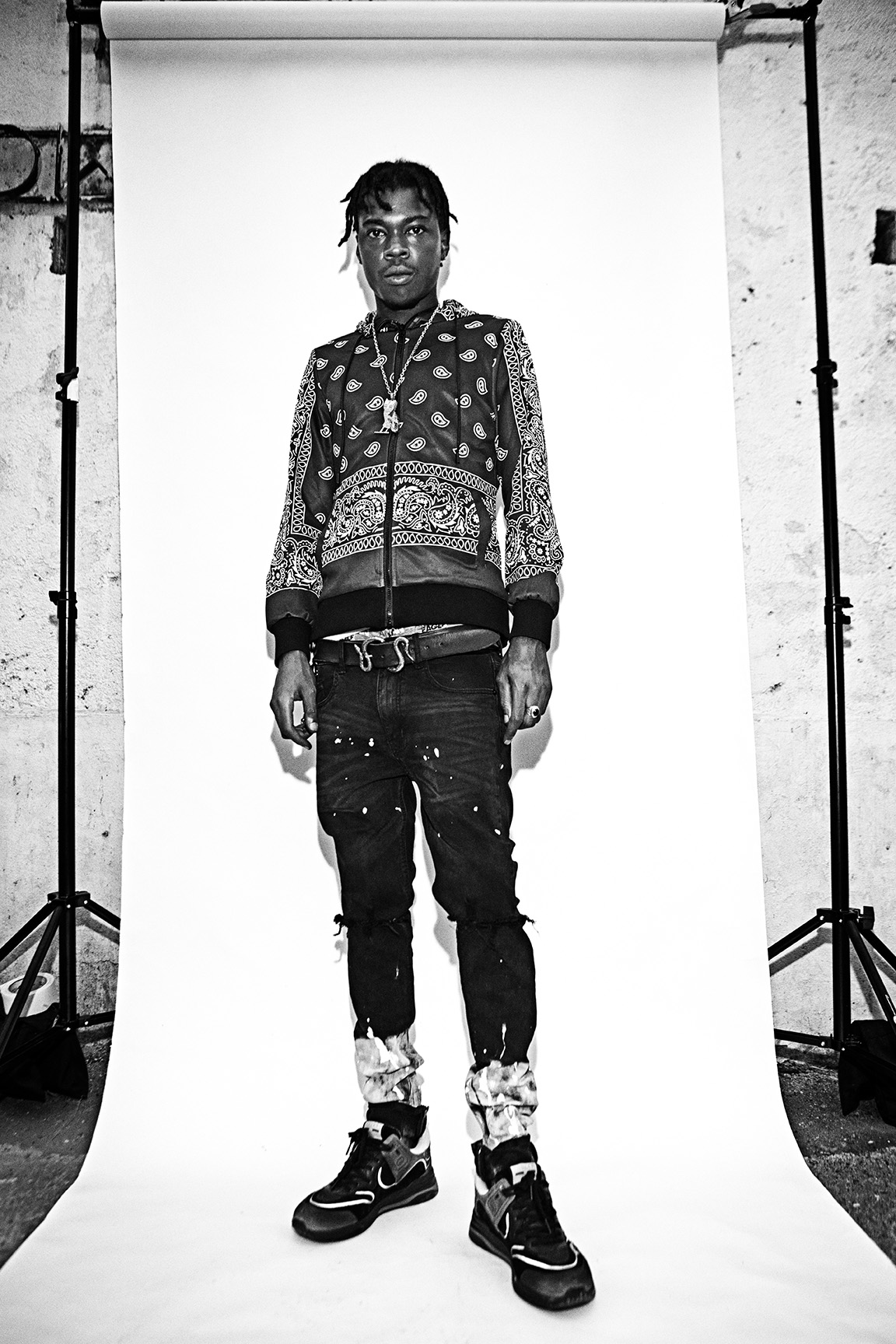
Skillibeng
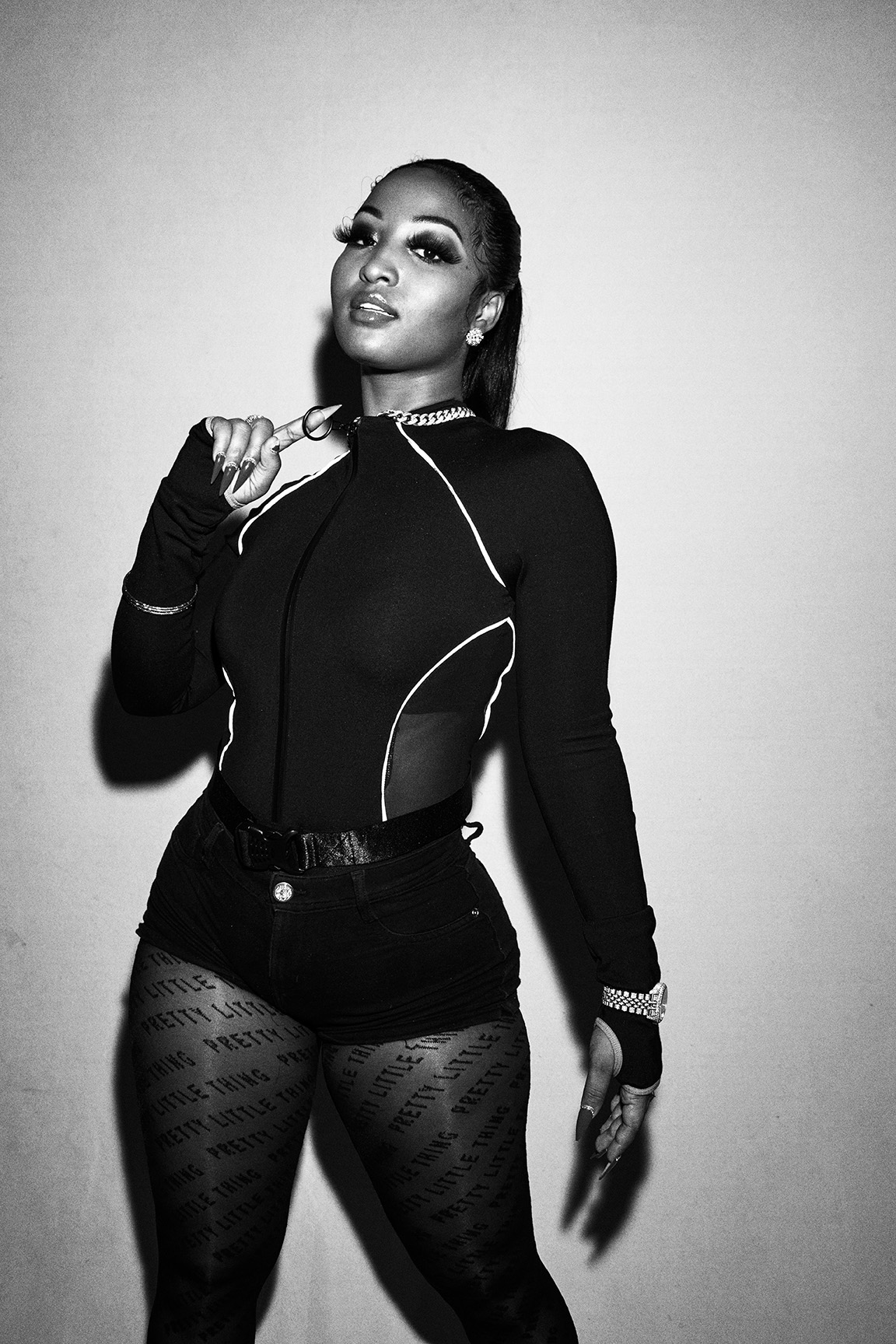
Shenseea
Can you describe yourself in four words? Modest, God-fearing and talented. When somebody asks you what type of music do you make, what do you say? I tell them I make everything. You know? I represent music entirely. Give me any track, I can go on it. Soca. Afro. Pop. Rap. Dancehall. Reggae. Just name it. Anything. I represent music. I’m a lover of music. How has 2020 influenced your work and your creative process? Well, actually I haven’t been writing as much. 2020 has taken a toll on my mentality. But I’ve been reading, watching, learning to dance. I’m making improvements. What have you learned this year? That you’re not supposed to take anything, any time or anyone for granted. How has the sound of Jamaica evolved during your lifetime? Dancehall’s different – everybody grows, finds new ways, technology changes, but we’re still incorporating our roots into the music. What’s the best thing about Jamaica? When I’m away I miss the food most, but the music is the best. Jamaica is full of flavour.

Blvk H3ro
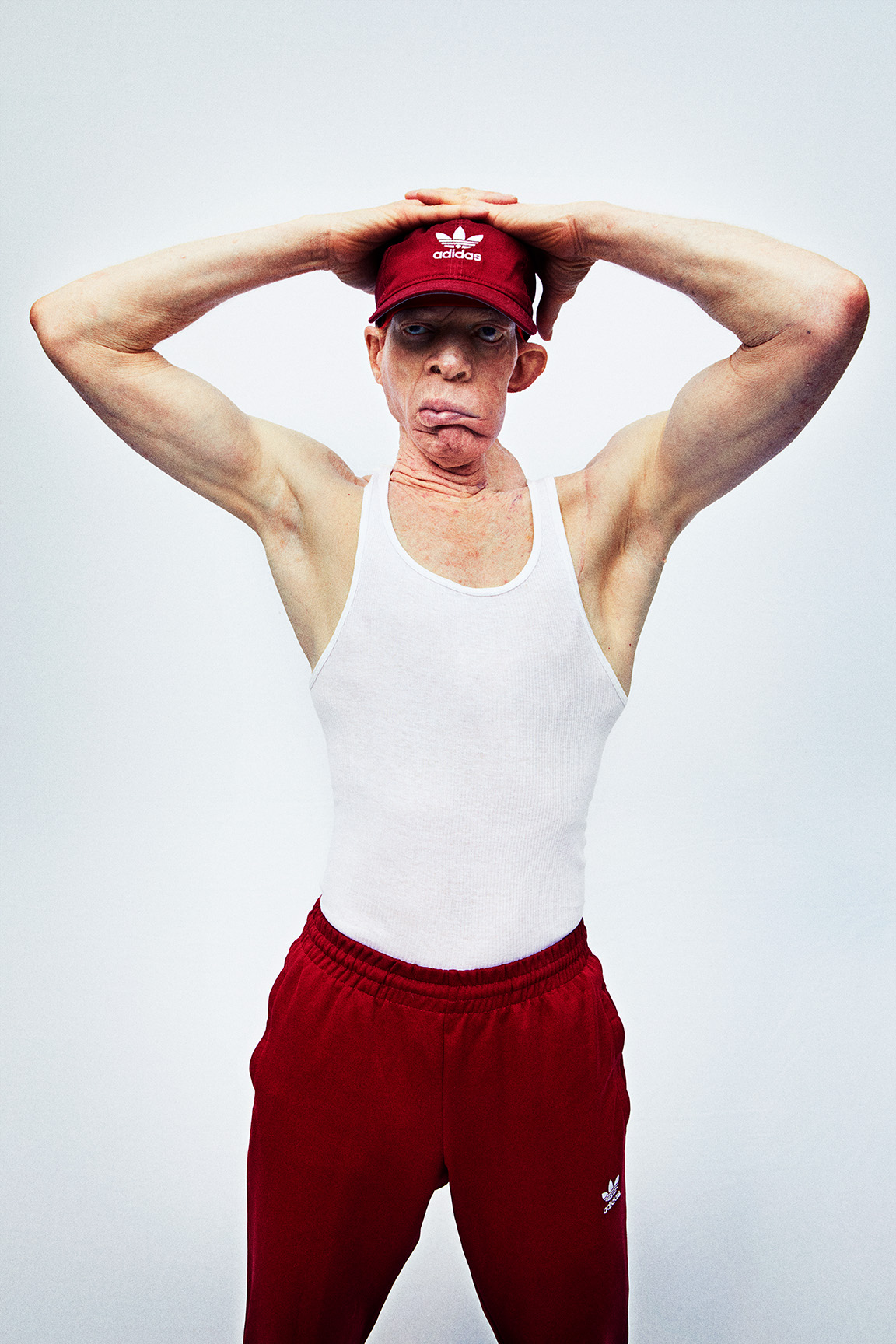
Yellowman
Where did you grow up in Jamaica and how do you think that it shaped you? I was born in Kingston, Jamaica. I was found on the street in a shopping bag and grow up in a children’s home, the kids teasing me and calling me names, but that’s what made me stronger. That’s what made me living right now. They used to call me white man, calling me names and scorning me when I go to school. But I’m OK. I’m used to it. That make me firmer and strong. I feel good about myself because the almighty, the higher man, the powerful man, he put me in a position to live. I’m still here. Still strong. You know? Can you describe yourself in four words? I’m good. I’m a good father. I respect people. I love everybody and I respect everybody. When somebody asks what kind of music you make, what do you tell them? Reggae. Pop. R’n’B. And I do a little opera, you know? How would you describe the music scene in Jamaica right now? It’s different from back in the days. The youngsters, they do music only for themselves and one set of people. Back in the days we did music for everybody. You know? Young. Old. Even now. But I love Chronixx, Proteje, Popcaan, Koffee. What’s the best thing about Jamaica? Well, the best thing about Jamaica are the people. Wise up. The people Jamaica develop, it’s not like back in the days. And you know, people live and move better than back in the days. I love you, my people. All over the world. France. Italy. Germany. Belgium. UK. Canada. America. All the continent of Africa. Zimbabwe. Ethiopia. Zion. Morocco. Libya. Brazil. All over.

Sevana
Can you describe yourself in four words? Brilliant. Thoughtful. Energetic. Sensitive. When someone asks you what kind of music you make, what do you tell them? Honest music. If someone asked me what kind of music I make, I’d say honest music. Might make me sound pretentious but I don’t necessarily know how to give it a genre because I don’t follow any of the genre rules. How would you describe the music scene in Jamaica, right now? It’s the most diverse it’s ever been. More women pushing forward than we’ve ever seen in the history of Jamaica. There’s a lot of unity. Less beef, less rivalries. And was there a lot of that in the past? A lot of it. For sure. Dancehall culture is built on rivalry. On clashing. On one killer dub. But there’s a lot of emphasis on unity now. How has the sound of Jamaica evolved over your lifetime? If you look at the kind of music I’m making, you wouldn’t necessarily in the past attach that to Jamaica. You know? It has come a long way and it’s thanks to the likes of Protoje, Chronixx, Beres Hammond… Music is a part of life in Jamaica. Just look how many different styles have come out of this island. There’s nothing like the energy on this island.
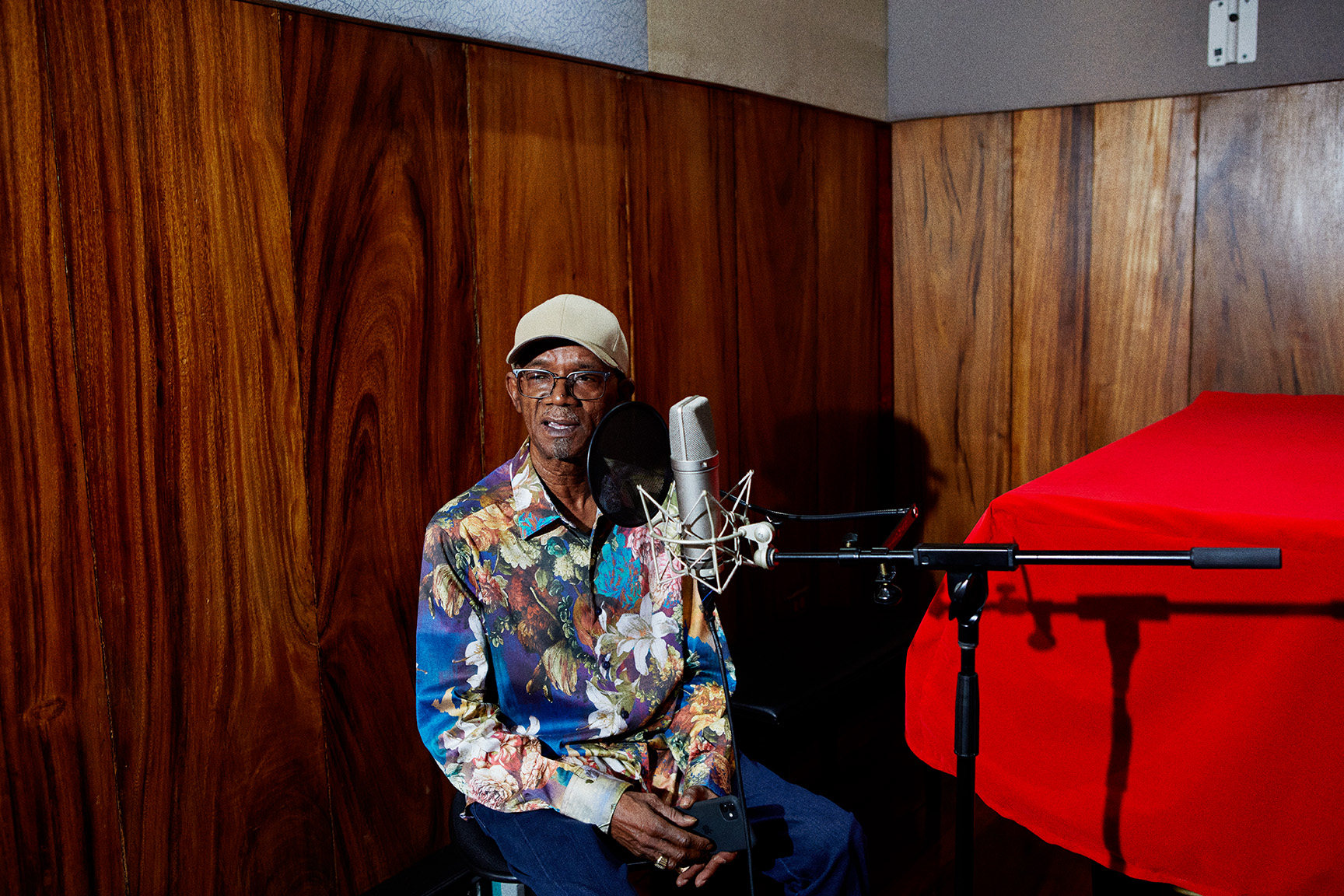
Beres Hammond
Can you describe yourself in four words? Woah! That’s an uplifting question. I was never asked that question before. Me don’t know if I can do that. Four words? One would be boring. Miserable when called for. Smart enough to know when to stop and foolish enough to be defending something that you know is not right, but you still defending it. When someone asks you what kind of music you make, what do you tell them? I’m a Jamaican, so the majority of the world when they hear Jamaican music they think of reggae, but I am not a reggae singer. I am a singer who sings reggae. There is a difference. How would you describe the music scene in Jamaica right now? I never have a problem with any music coming out of Jamaica because the youths are having a grand time doing what they are doing and I am always supportive. We have to let each generation express themselves in the way they know how. How has 2020 influenced your work or creative process? What have you learned? 2020 has been the craziest year. In terms of the amount of folks, musical folks, that I knew just swept away by this virus. I will remember this year for many, many years to come, 2020, as the most devastating one to the music, our music. And also as a year that makes me reflect and think about what I should do next and maybe what I should have done before. How has the sound of Jamaica evolved over your lifetime? It’s gone a long way. I’m proud of where it is at. Very proud. We produce some fine minds, fine athletes, the best music. You go anywhere in the world and people know Jamaica. I’ve seen the rest of the world and I’m happy that I was born down here.
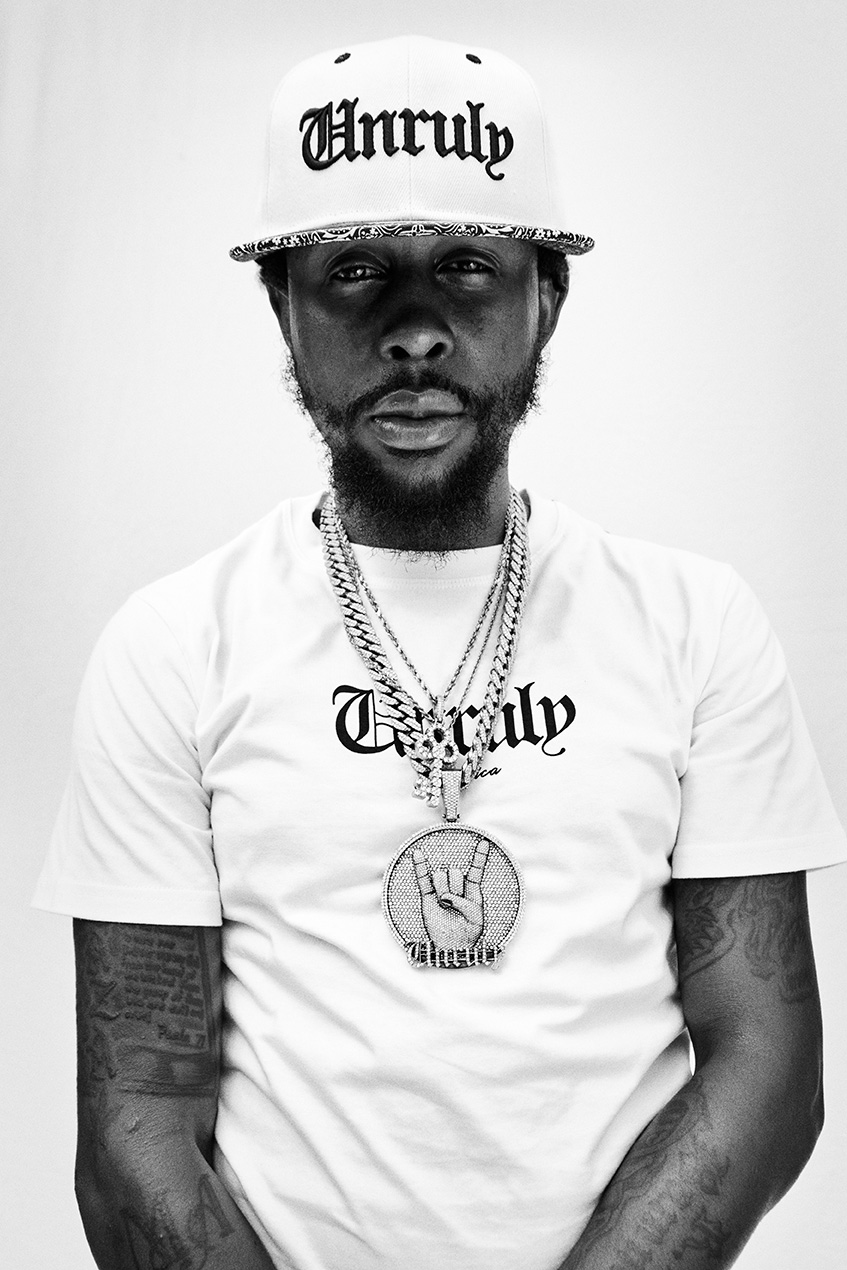

Chronixx
How would you describe the music scene in Jamaica right now? Disneyland shaped. The whole reality is an imagination. Jamaican society is an imagination. We just work with the imagination and we make music out of it. It inspires us, you know? How has the sound of Jamaica evolved over your time? Over your lifetime? I was born in 1992. People get nostalgic for a time when music was analogue. When music had to be good enough for people to give their time for you to make a record. Jamaican music is evolving just the same, like all the other music in the world. It’s still slapping man. Reggae is transitioning from a place where it’s hitting you directly in your soul to hitting you in the intellect. Youths nowadays, we are information junkies. We started to get a better grasp of the concept of English language. So now we can twist it more. We’re making our language now, you know?
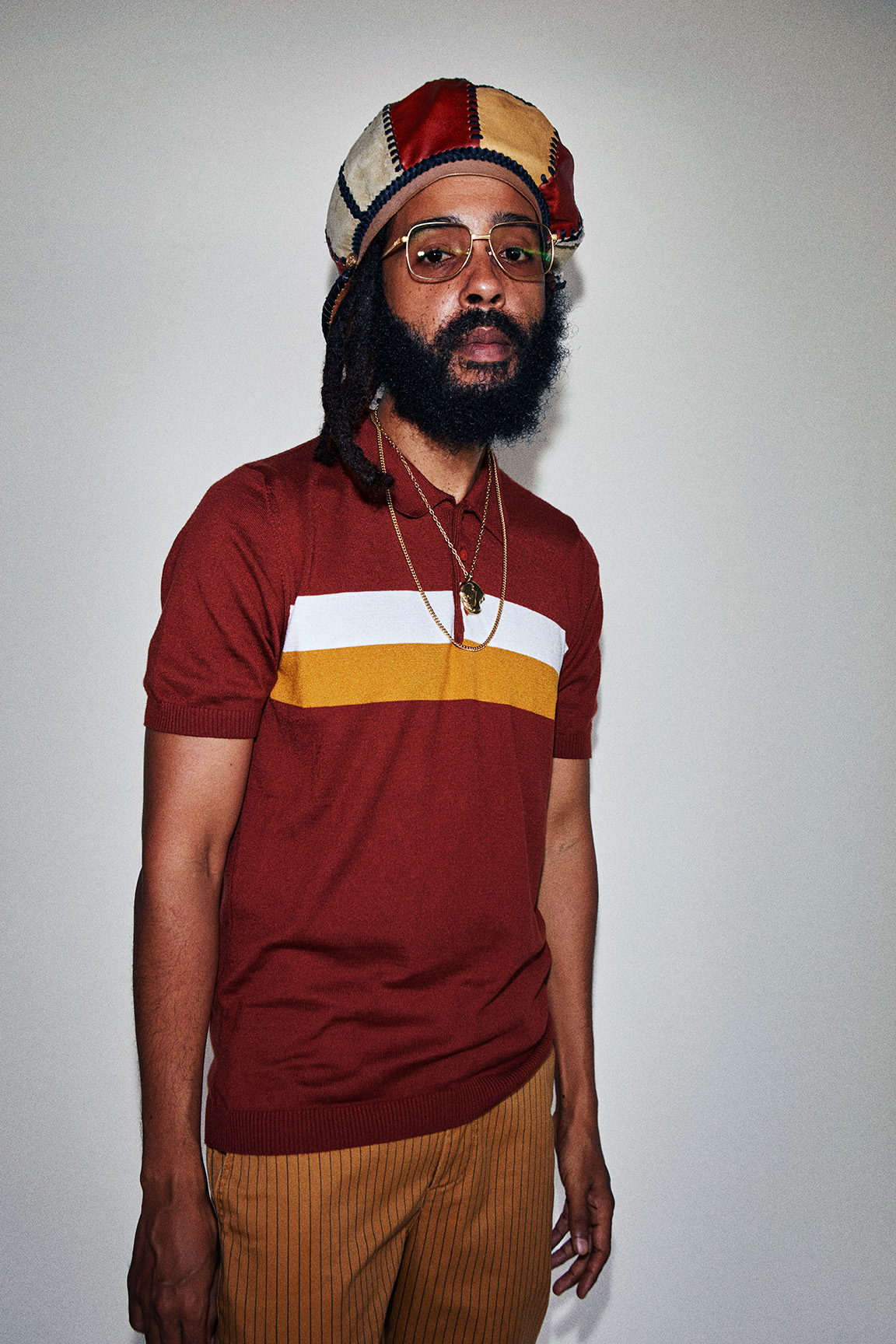
Protoje
How would you describe the music scene in Jamaica right now? Very vibrant. There are so many exciting artists working in different styles of music. The scene isn’t really stuck doing one thing. It’s very positive. Can you describe yourself in four words? Patient, strategic, visionary and kind. How has 2020 influenced your work and creative process? No touring, so I spent the year in the studio, basically living in the studio. A lot of introspection. A lot of deep thinking. Making a lot of music. How has the sound of Jamaica evolved over your lifetime? The sound of Jamaican music evolves all the time. But you know it also circles back, so a lot of stuff from the 80s you kind of hear again now, but it’s been updated. Jamaican music is a big cycle we’re always adding to.
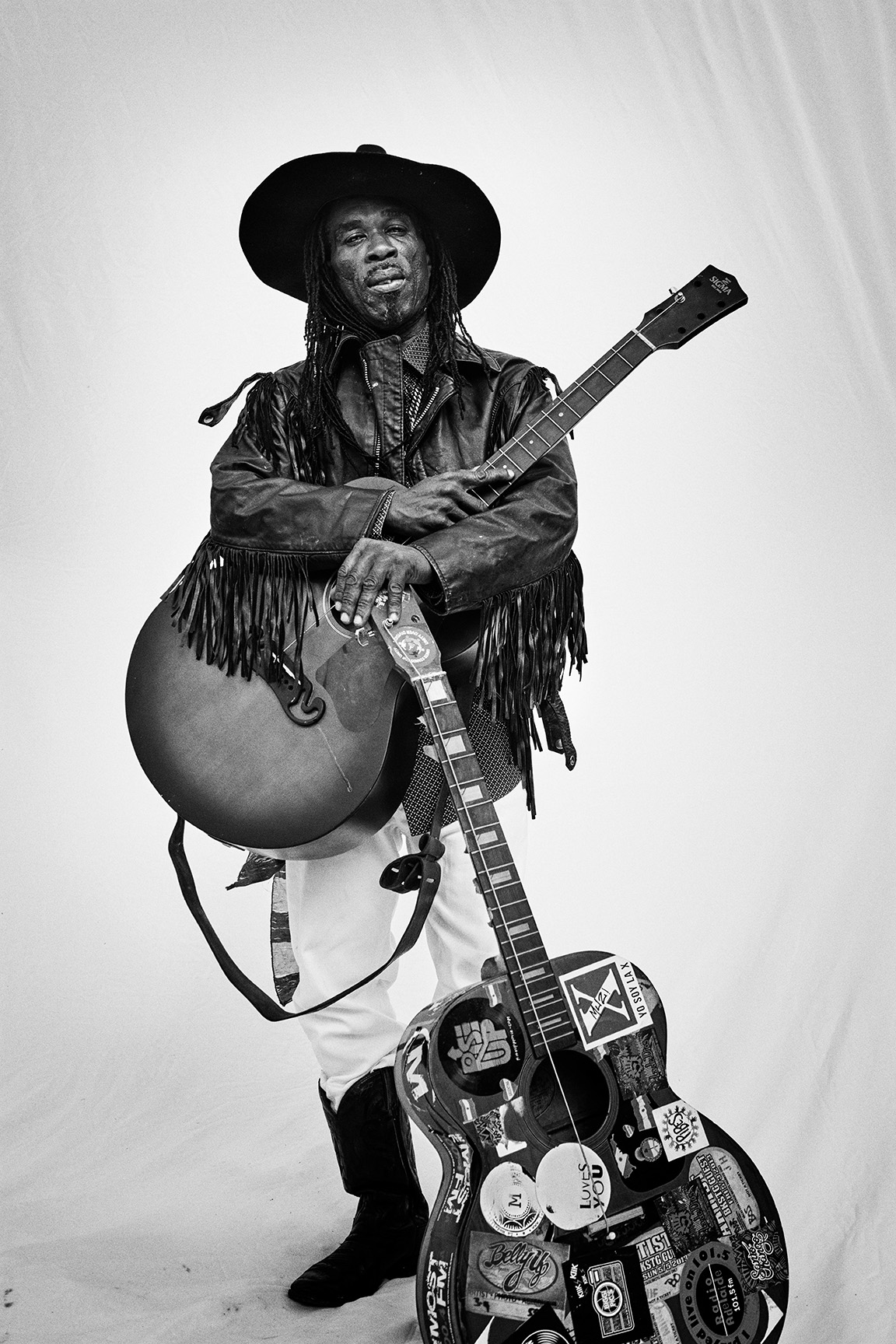
Brushy One String
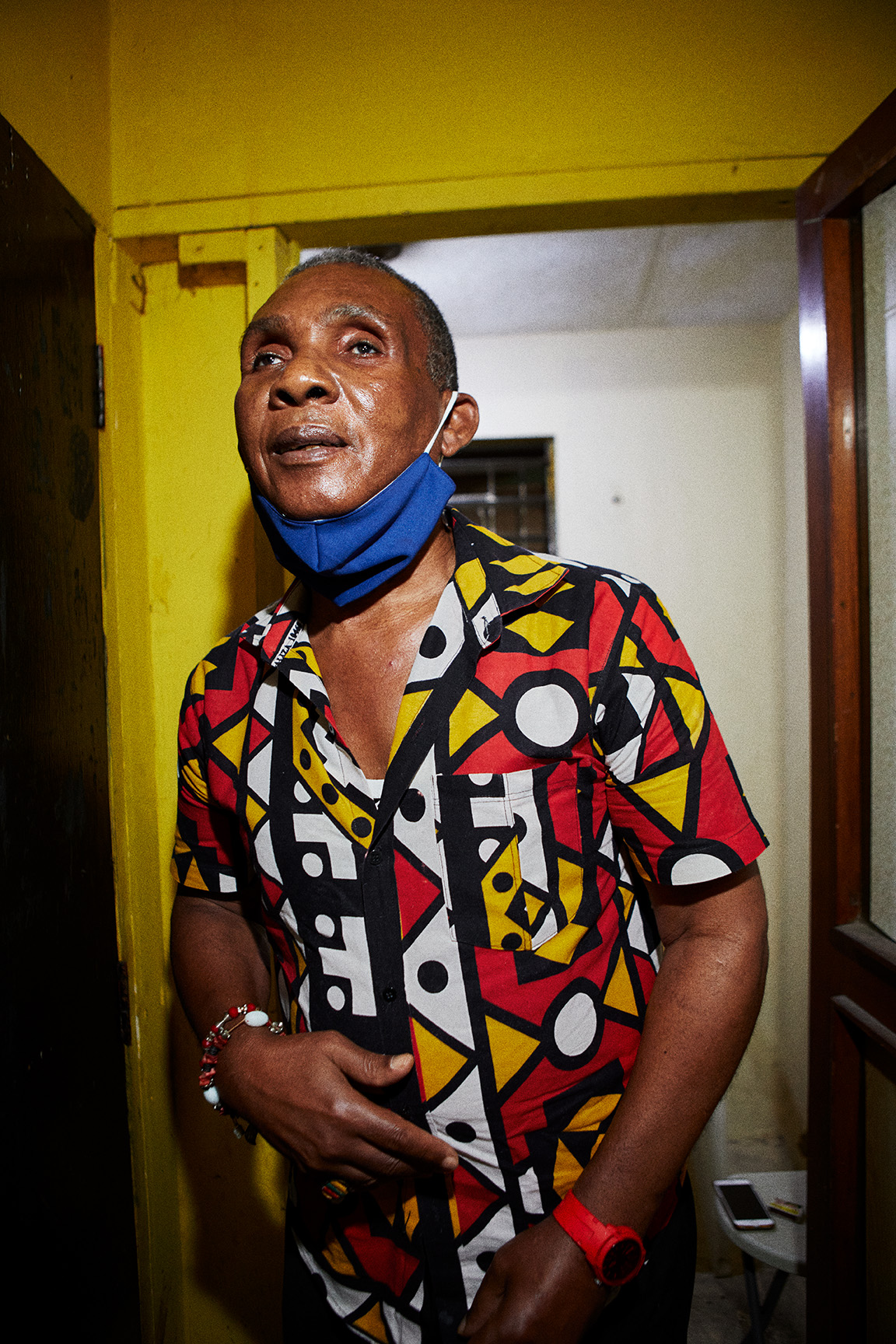
Ken Boothe
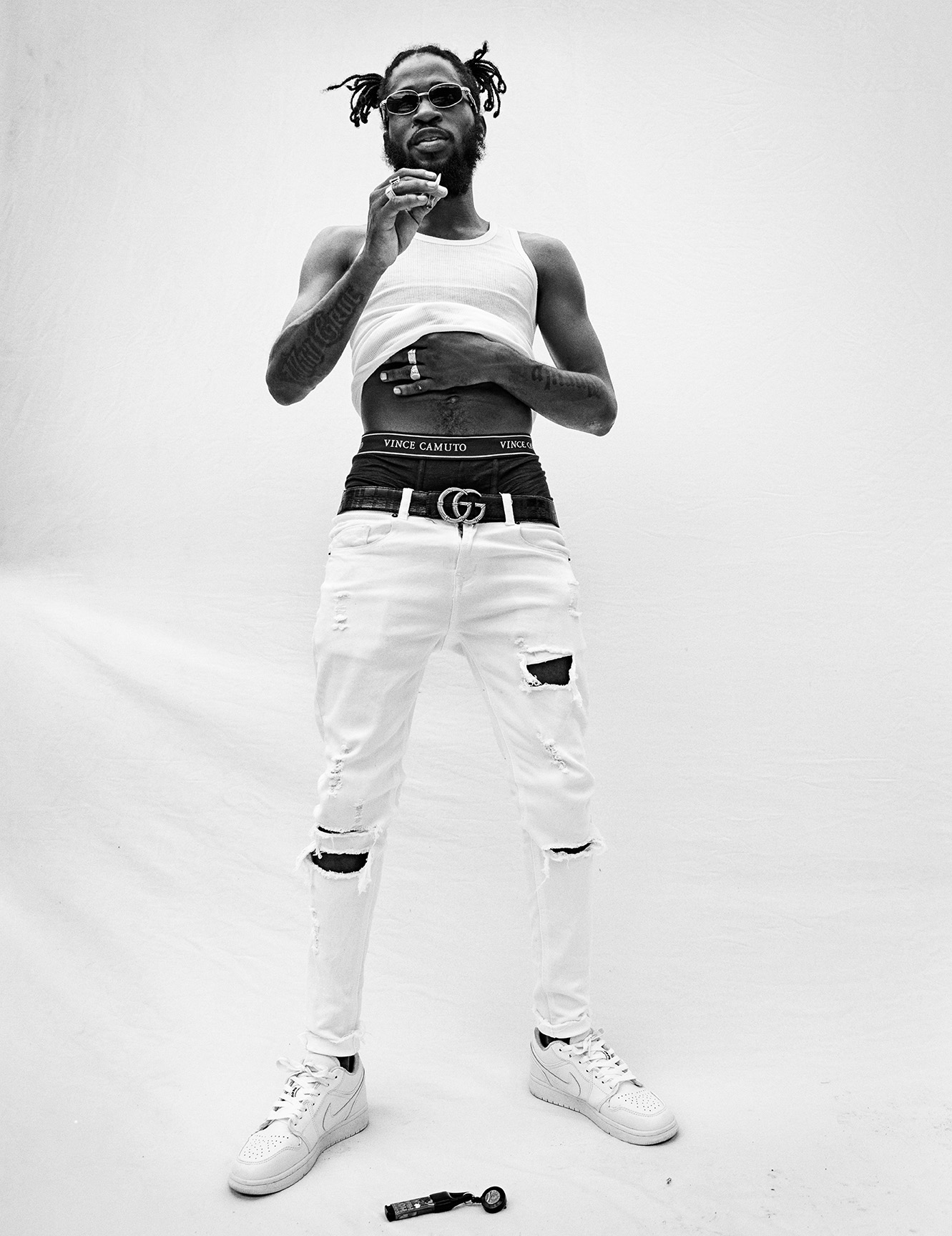
Quada
Describe yourself in four words… Wild. Unruly. Loyal. Optimistic. When somebody asks what kind of music do you make, what do you tell them? I make forever music. Make positive music. Music that will impact. That will change people’s lives. Soul music. How has 2020 affected your work and creative process? I learned a lot and I’m gonna take what I learned this year and carry it over. But I can’t complain. What did you learn? Move slowly and take it positive.
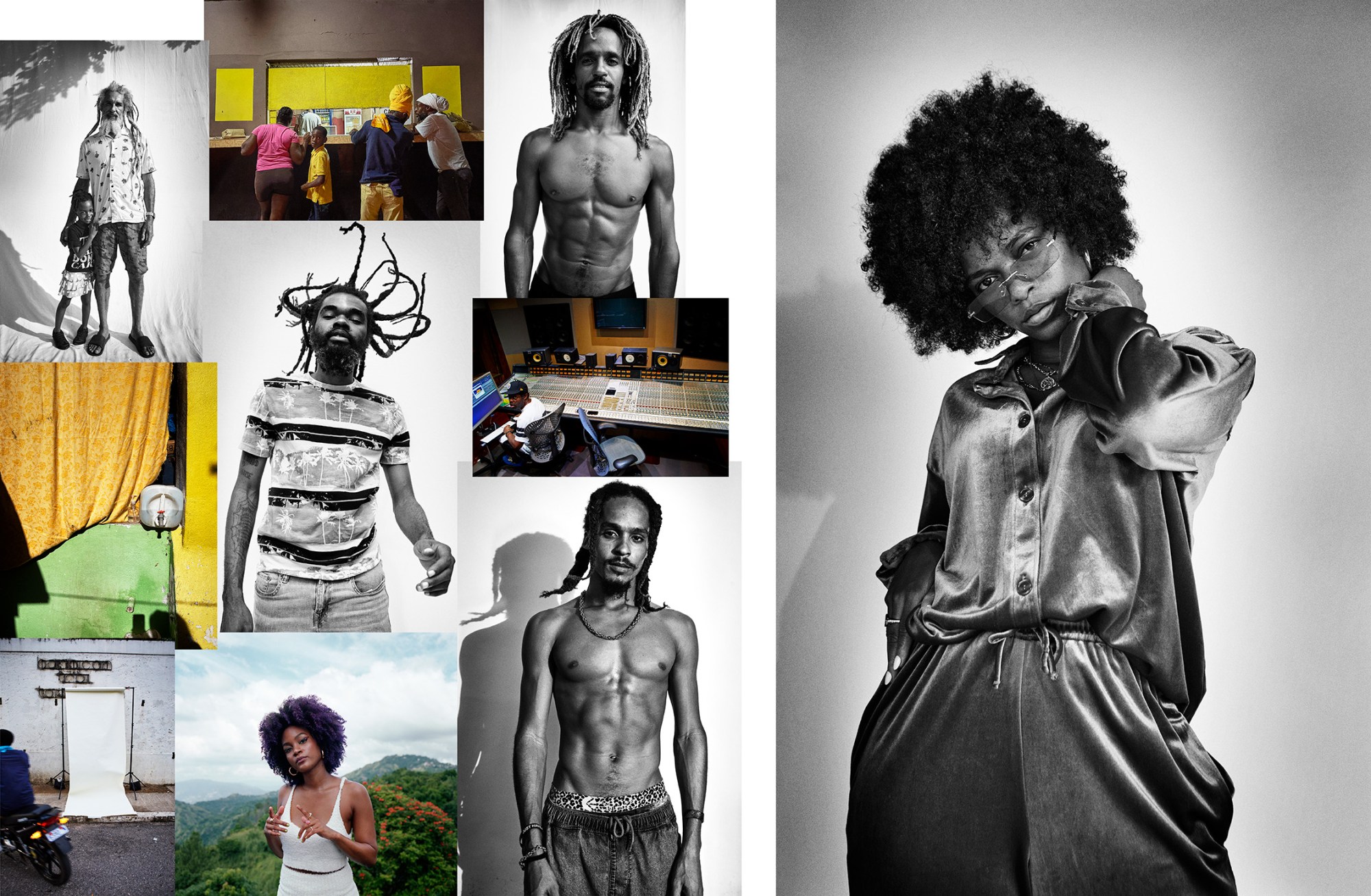
Icah Wilmot
When someone asks what kind of music you make, what do you say? Music that resonates with my vibe and consciousness in life. How would you describe the scene in Jamaica at the moment? In transition. There’s a new generation singing to new struggle and realities. The new sounds and melodies being created amaze me. The message still hold true. What have you learned from 2020? I’ve seen the influence music has on the lives the people. In these unstable and uncertain times, music is a guiding force. The positive message of music is something we need to survive this reality. We musicians have to guide the world into 2021. Music is a social interaction, we need to come together.
Ivah Wilmot
Where did you grow up and how did it shape you? I grew up in Bull Bay, by the beach, eight miles east of Kingston. My yard was always full of people, musicians, surfers, artists. My family never had more than we needed but it always felt like we were rich, even if it wasn’t with money. What kind of music do you make? I make music for fun and I try not to take it too seriously. I like telling stories, asking the listeners questions, so they might look at things in different ways. What’s the music scene in Jamaica like right now? It’s always changing. One day you wake up and there’s a positive message that everyone preaching, and the next day you have a whole different group of people who push a negative mindset. My hat will always go off to the few Jamaicans who can perform, who have actual musical talent. What have you learned this year? You have to make the best of times. What’s the best thing about Jamaica? The music and the creativity. Jamaican people are resourceful. The influence a small island like Jamaica has had on the world is crazy.
Jaz Elise
Can you describe yourself in four words? Artistic. Caring. Loving. Grateful. When somebody asks you what kind of music you make, what do you tell them? World music. Reggae music. Dancehall music. Every kind of music. If you have ears, you can listen. How would you describe the music scene in Jamaica right now? Flourishing. The music scene in Jamaica right now is flourishing. It’s dynamic. Word class. How has 2020 influenced your music and your creative process? It’s been a rough year, emotionally and mentally. So a lot of that is in my music right now. A lot of pain. A lot of love. A lot of longing as well, due to the curfew. There’s a lot that is missing in our social life, that I’m feeling, that is in my music. The solitude of 2020 has really pushed me creatively to just give everything that I have within me and for the opportunities that I have. I’m just grateful for them. What have you learned this year? Who you are is enough and what you’ve been through is enough. What are you hopeful for in 2021? Free my people. That is what I’m hopeful for in 2021. A better world and a greater energy.
Lila Iké
Describe yourself in four words… Chill. Chill, vibsey, emotional. When somebody asks you what kind of music you make, what do you tell them? Vibes, yo. I don’t really believe in genre. I just make music that my soul wants me to make. Louis Armstrong said there is only two types of music. The good music and bad music. Exactly! Exactly. I guess I make good music then. How would you describe the music scene in Jamaica right now? It’s a bunch of different styles. It’s no longer reggae or dancehall. You know? That grey area in between is becoming pretty colourful. It’s pretty exciting to be in music here right now. How has 2020 influenced your work and creative process? 2020 been stressing me out, you know? And what are you hopeful about for 2021? 2021, man, I’m trying to get back on that road. I want to get in that tour bus, and I want to see people and watch them enjoy my music, and talk to people and just, you know, have real life interactions. What is the best thing about Jamaica? The food. Nowhere compares, for sure.
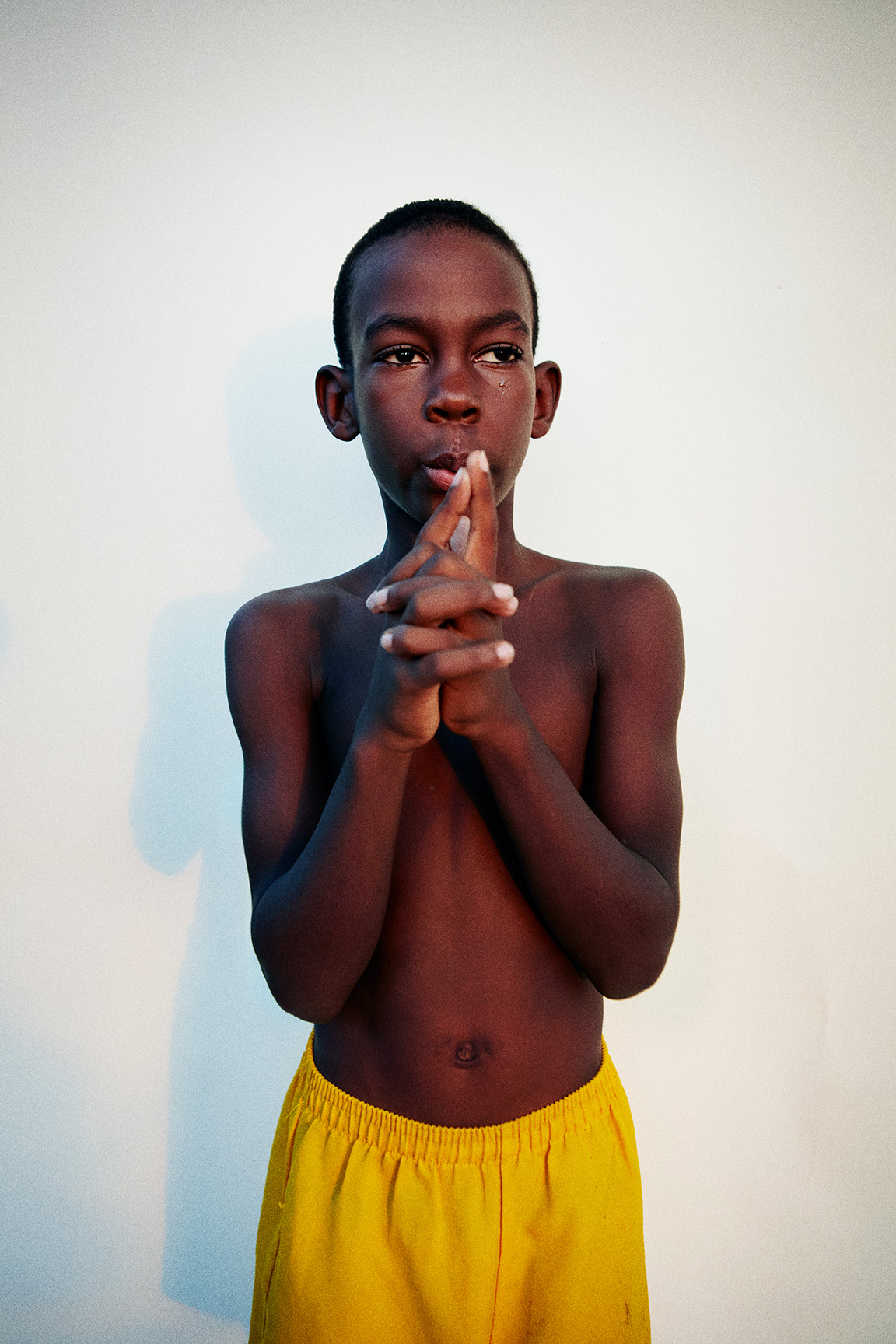
Khori Valentine
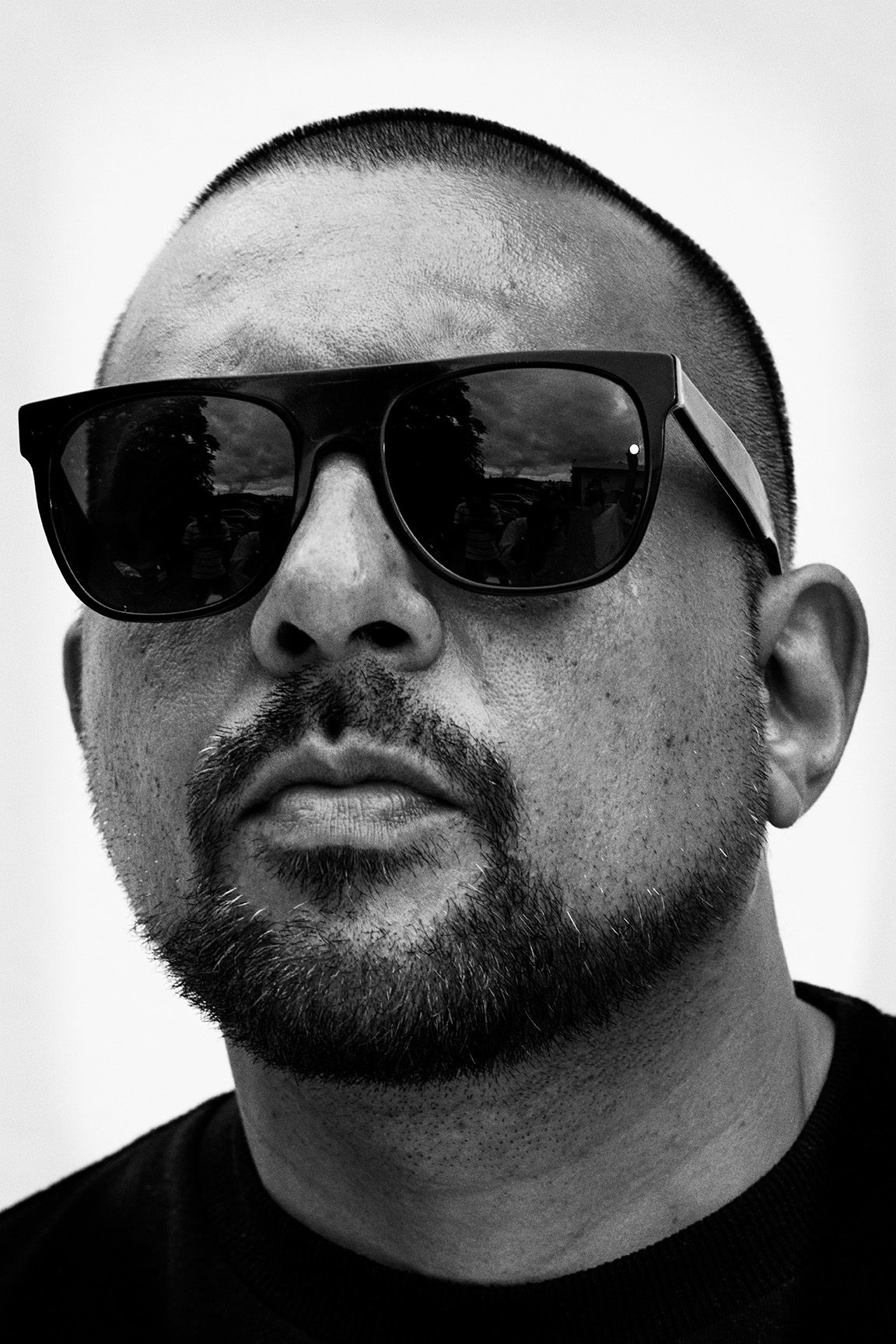
Sean Paul
Where did you grow up and how do you think it shaped you? I grew up in Kingston, Jamaica. Uptown Kingston, Jamaica. This is a very vibrant society. The culture. The country. What can I say? It’s a very deep place. From the biggest thing to the smallest thing. Fastest thing to the slowest things. Here. In this little island. How would you describe the music scene in Jamaica? I’m very proud of the ladies stepping up. Shenseea, Koffee, Spice is doing her thing as usual. Ishawna. A lot of these young ladies are stepping up. How has the sound of Jamaica evolved over your lifetime? The music and culture has evolved so many times. You know what I mean? We’ve had ska, rocksteady, lovers rock, dancehall… what happens in kids’ lives changes each generation, and the music changes each generation, but there’s a thread running through the whole thing.
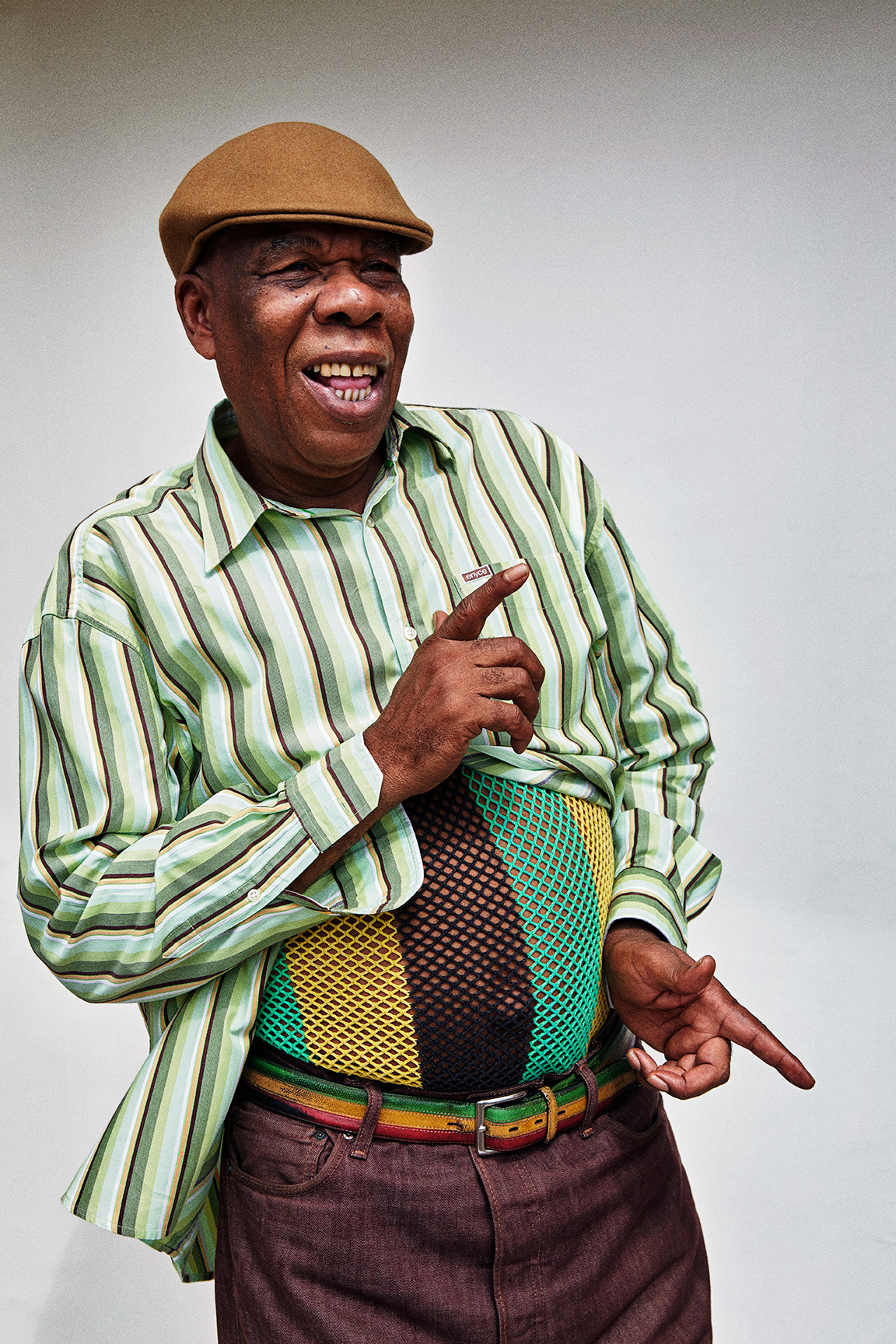
Burro Banton
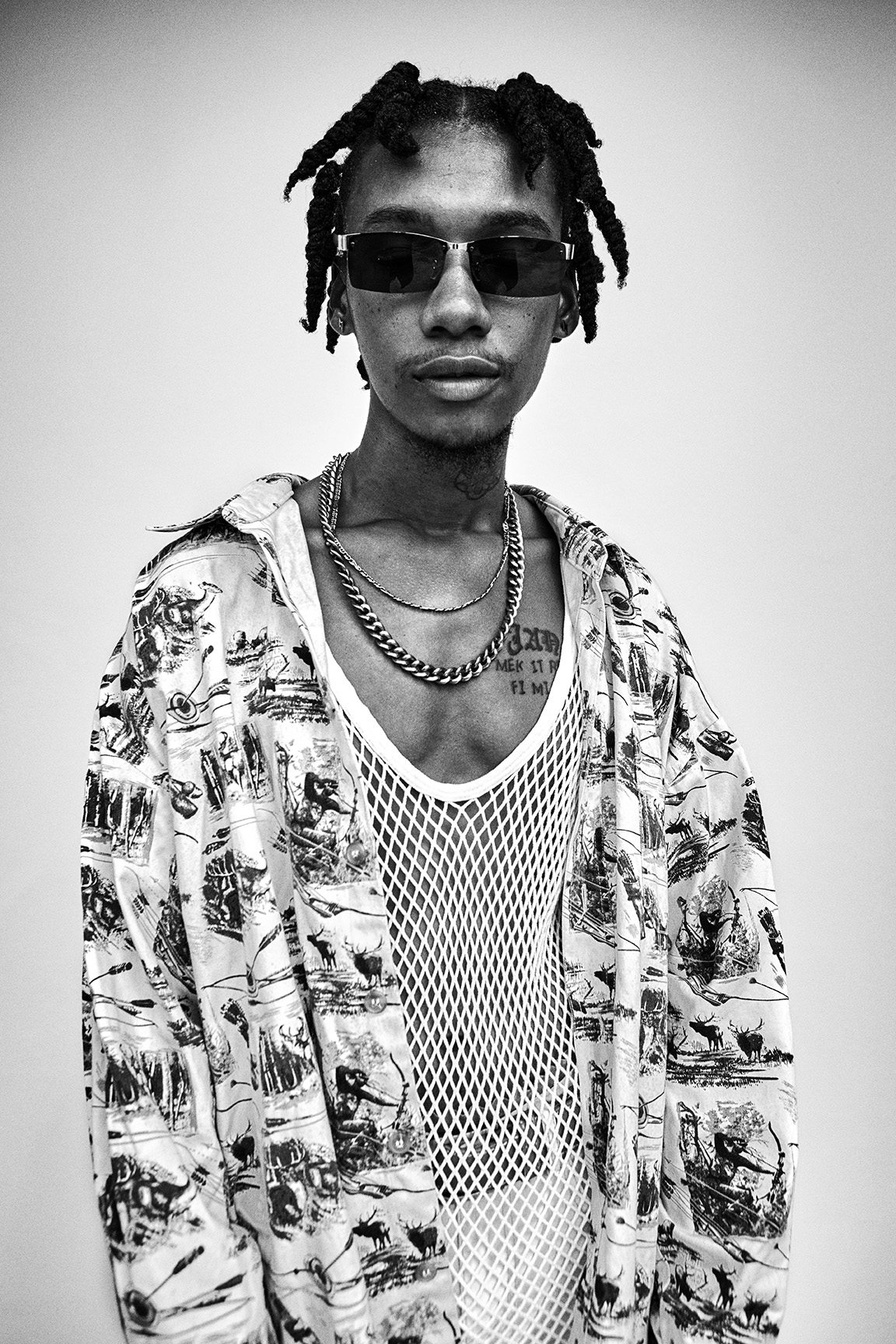
Leno Banton
When somebody asks what kind of music do you make, what do you tell them? I tell them that I make music. Just music. Do you get me? I’m rooted in Jamaica. I’m just a Jamaican artist. I make whatever I want. I make music. How would you describe the music scene in Jamaica right now? Very diverse. Many sounds, personalities, messages. You can tap into whatever you want to hear. How’s the sound of Jamaica evolved over your lifetime? I would say it’s more precise. More pristine. Everything used to be raw. Like going from analogue to digital. But it’s still dancehall. It’s still reggae. It still has that core.
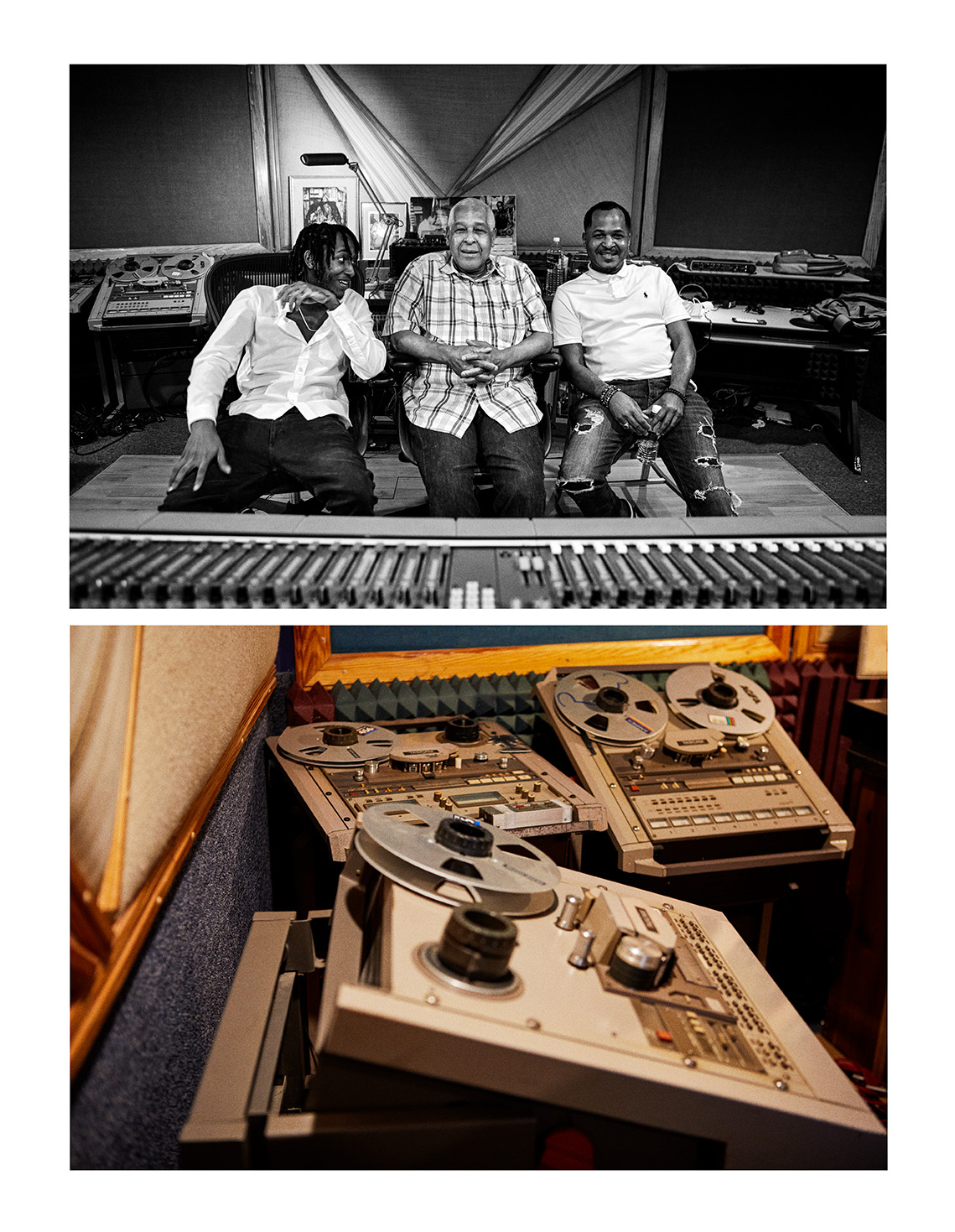
Projexx, King Jammy, John John
Can you introduce yourselves? Projexx: This is Projexx and we’re live in Kingston, Jamaica. King Jammy studio. John John: I’m John John. King Jammy: And I’m King Jammy. The father of John John and the grandfather of Projexx. How would each one of you could describe each other? P: I would say my grandfather is a very talented musician. A very hard-working musician. And I would say I’m very determined, persistent, hard-working. KJ: I’m the foundation of talent within my own family, you know, We’re all in the music. When somebody asks what kind of music you create, what would you tell them? P: It’s a fusion. You know what I mean? A fusion of everything. If it sounds good to me, you know, I utilise it. JJ: I’m hardcore dancehall. Never stopped. Not changed. KJ: Well, as you all will know, I am the creator of dancehall. The first dancehall tune was produced by me. That change from acoustic to digital. I’m the one who did that. JJ: King of dancehall. How would you describe the music scene in Jamaica right now? Like what’s happening with it? P: It’s evolving, new youth coming up, experimenting. But we need to keep to the roots. JJ: New generation make a different type of music. We just have to accept it. KJ: I’m really accepting the change, but we need some more vibrancy in the change. You know? We need more hardcore thing. We need some copying from my era, you know? We need to get some more of that ‘in the know’ thing to make it more vibrant. JJ: The youths don’t really know the roots, you know? P: Actually, make a body of work, you know, and do music solely from your heart. You know what I mean? JJ: When I’m making music. I don’t think like I’m going to make that international music. When I go in the studio, I must do what the spirit tell me. Spiritual. How has 2020 influenced your work and creative process? P: I’ve always been a hard-working man, but when I was forced to be locked down in quarantine, I took the opportunity to do some serious work. Every day recording two or three songs. JJ: I’m discovering corona don’t stop me one bit from my work, you know? In music long long life. Did you make anything together while through quarantine? KJ: We always make things together, because. P: So it’s still a togetherness. KJ: This family is a together-oriented family. All of us are in the music. Everybody. Wife. Children. Grandchildren. Great grand is going to come, you know, doing the same thing. JJ: I support Projexx in anything and everything that he’s doing right now. You know? We always keep the connection. KJ: I’ve been supporting my grandson from when he was a baby. What do you guys think you’ve learned though this year? JJ: No one know the minute and the time of the hour, so I hope and pray for the best.
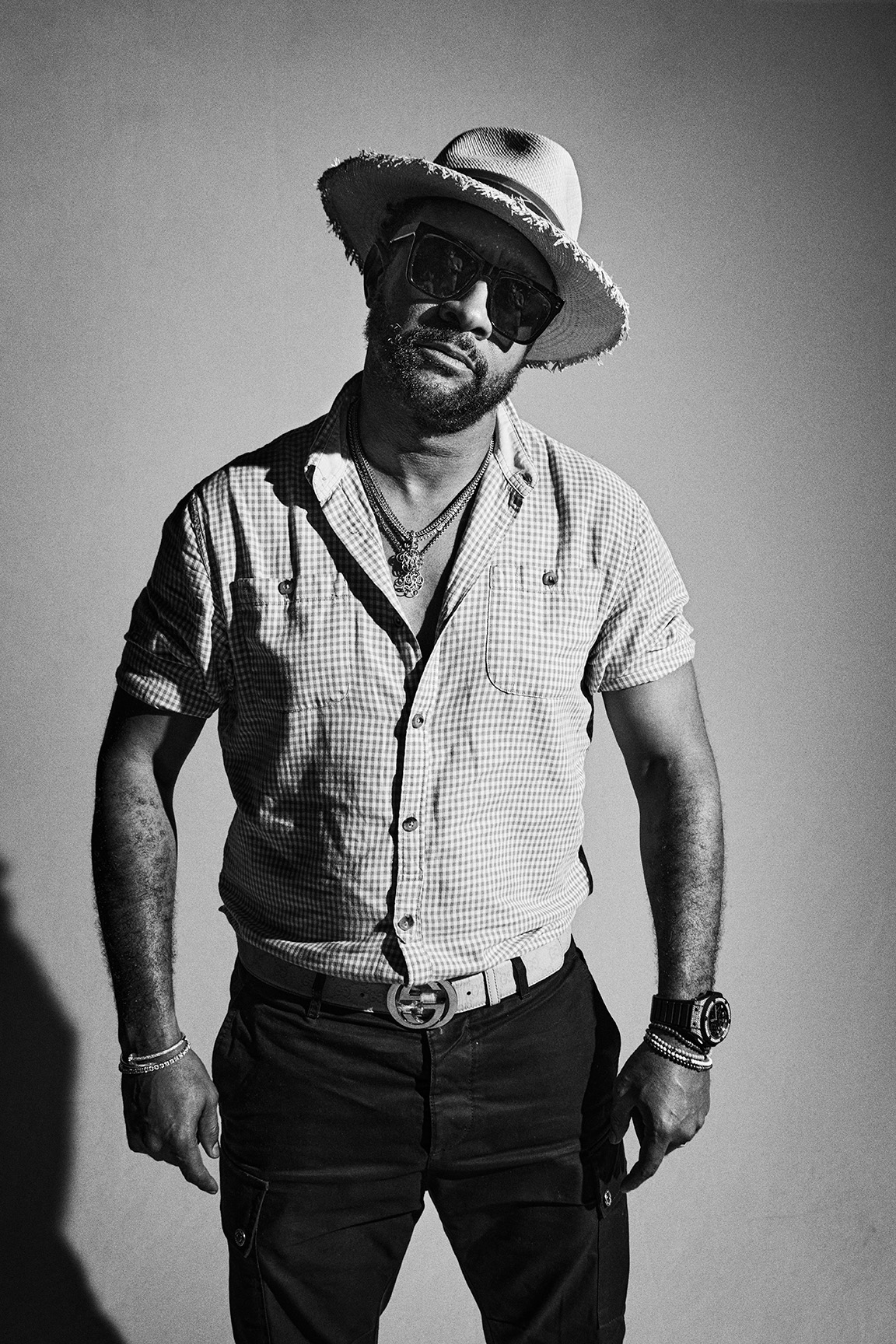
Shaggy
Where were you born and how did it shape you? I was born in Kingston, Jamaica. We came from humble beginnings. It certainly shaped me. It gave me drive, it made me dream. Can you describe yourself in four words… Driven, grateful, witty, kind. What did you learn in 2020? I learned to appreciate the simple things, the simpler things, sometimes you realise, are the most important things. For 2021 I’m wishing everyone joy, I want everyone to find more joy in their lives, find more smiles. How has the scene in Jamaica evolved over your lifetime? A lot has changed, but you can’t have evolution without change, you can’t achieve greatness if you just stay in your comfort zone. I love the new generation, people like Skillibeng, Koffee, they’re making disruptive music. What’s the best thing about Jamaica? It’s people, the resilience of the people, the love of the people. The culture, the aura, the beauty, all come from the people. It’s a vibe. There’s no where in the world that carries the vibe we carry.
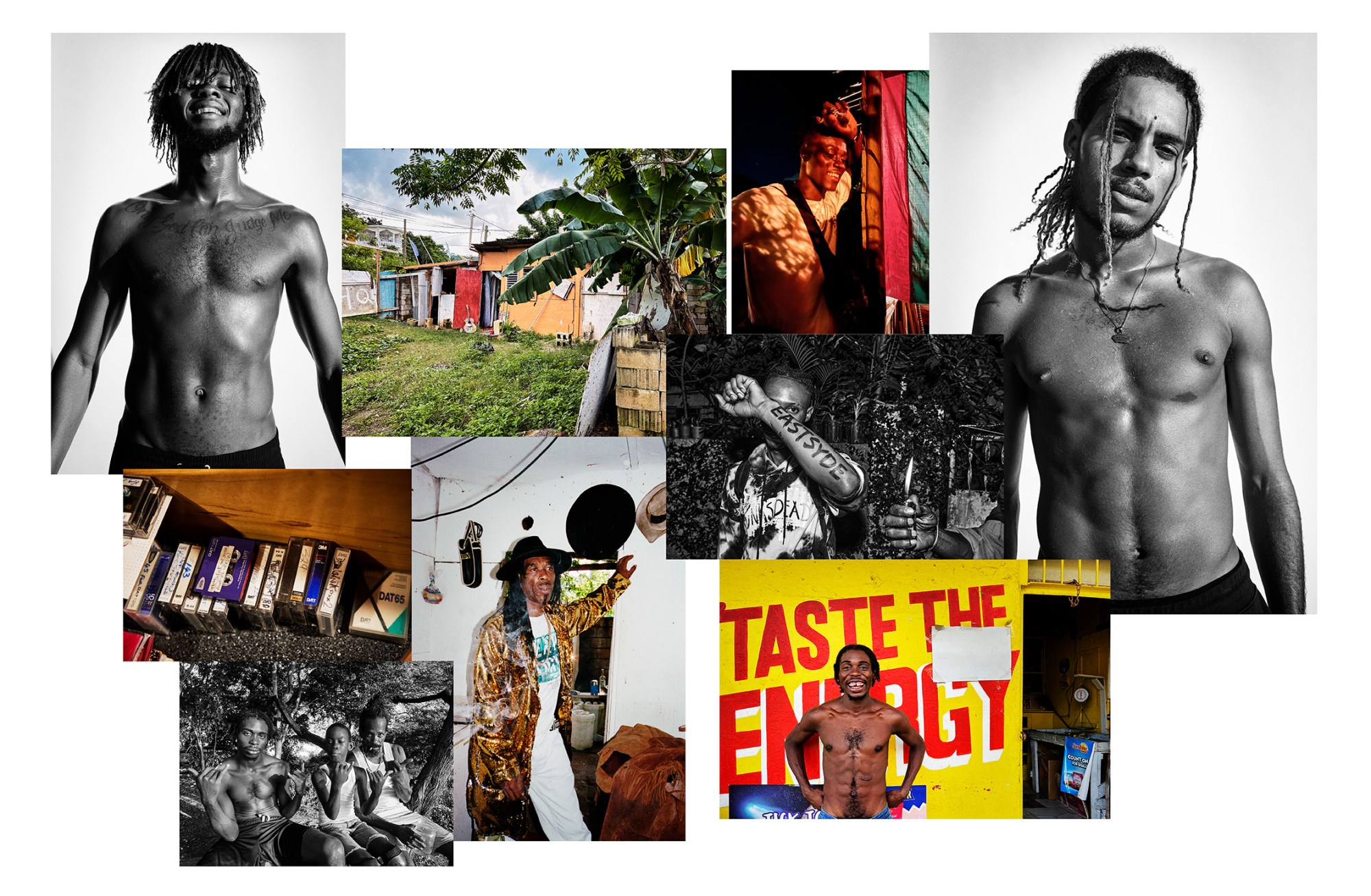
Shama Beckford
Where did you grow up and how do you think it shaped you? I grew up in Bull Bay, Jamaica. A small town by the coast in Saint Andrew. It’s a very humble neighbourhood and I’m still in my endeavours. Bull Bay made me grounded, appreciative. When somebody asks what kind of music you make, what do you tell them? Everywhere you go there’s a sound system strung up playing music, whether that be reggae or dancehall music. The influence of music is always around you. I would say my music is very unique. I draw inspiration from many different places, many eras. My music is a description of my life. What have you learned this year? I’ve learned to appreciate my freedom. Out here, right now, it’s very strict. I’m hopeful for 2021, I want to start travelling again, surfing some better waves around the world and putting out an EP. What’s the best thing about Jamaica? How laid back it is. How kind people are. How beautiful it is. The beaches and the nature.
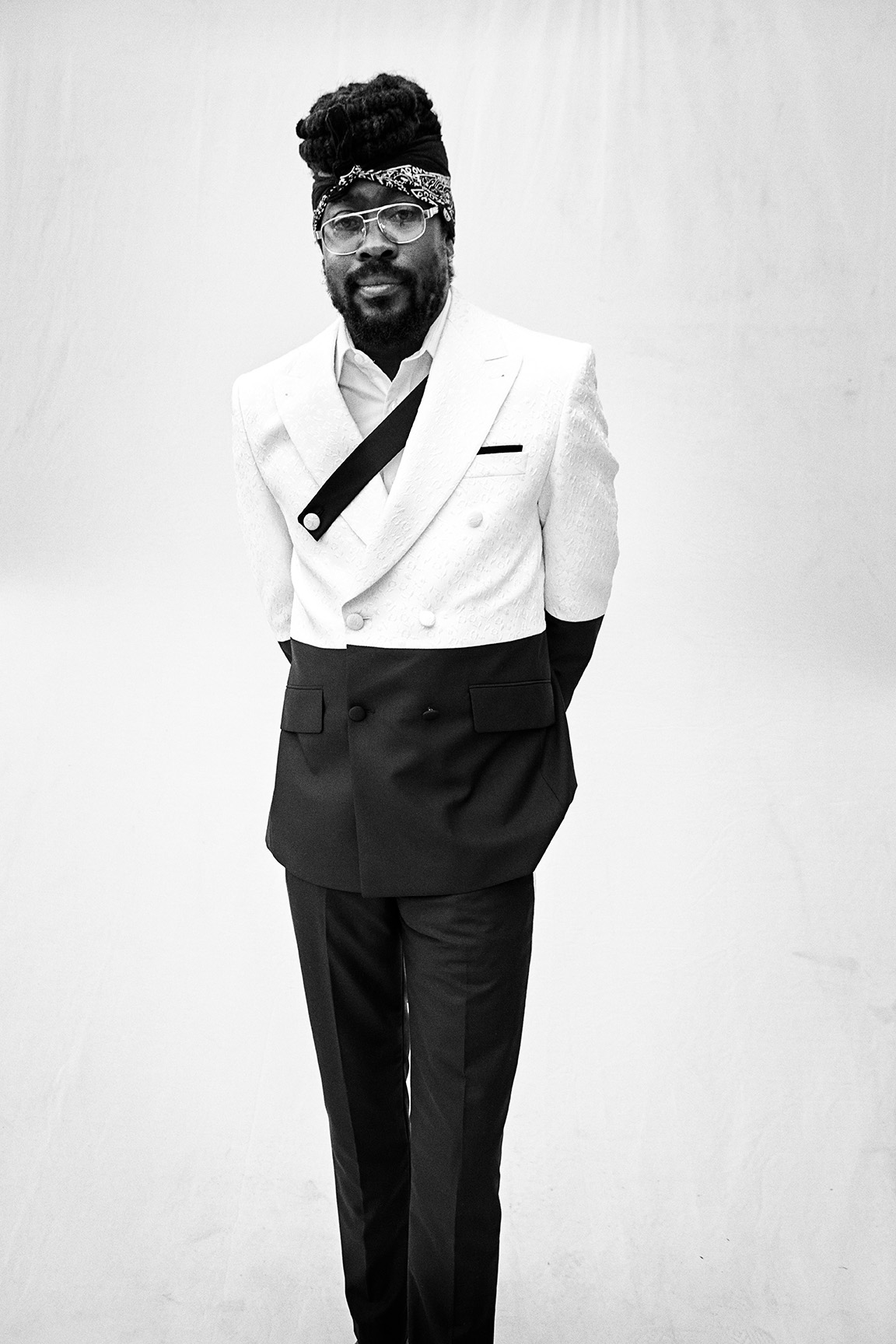
Beenie Man
Where did you grow up and how do you think it shaped you? I was born in Kingston. 1972 to be exact. August 22nd. I was born to do music as I started out crying from the first day. Me take the first cries as the first note that I took, so yeah. Can you describe yourself in four words? Who am I? In four words. I am an entertainer. A father. A musician. And a businessman. If somebody asks you what kind of music you make, what do you tell them? I don’t make love songs. I make music that you can make love to. And I make music for the gangstas and I make music for all the people who fight the system. And I do make music for the system. I make music for everyone. How has 2020 influenced your work and creative process? 2020 is the worst year. For everybody. This is not the best year for nobody. I lost my mum this year. And I lost a whole lot of friends and a whole lot of people. There’s no stage for you, no galleries. What do you think you learned this year? The most important thing is courage. If you build your courage and hold it and keep it, you’ll head far and you will always be remembered by the people who love you. What is the best thing about Jamaica? Everything. Water. Environment. The best ganja. The best music. The best support. The nicest people. The best chefs. The best food. Best beaches. Everything in Jamaica. The nicest thing about Jamaica is Jamaica.

Stalk Ashley
When somebody asks you what music you make, what do you tell them? I just make music. How has 2020 changed your work process? I’ve been locking in and just doing things my own way. Learning to do things by myself and with my own space, so, yeah, it’s been like that. What are you hopeful for about, for 2021? I would hope that the world gets to a better place, open again – that we can just live again.

Tommy Lee Sparta
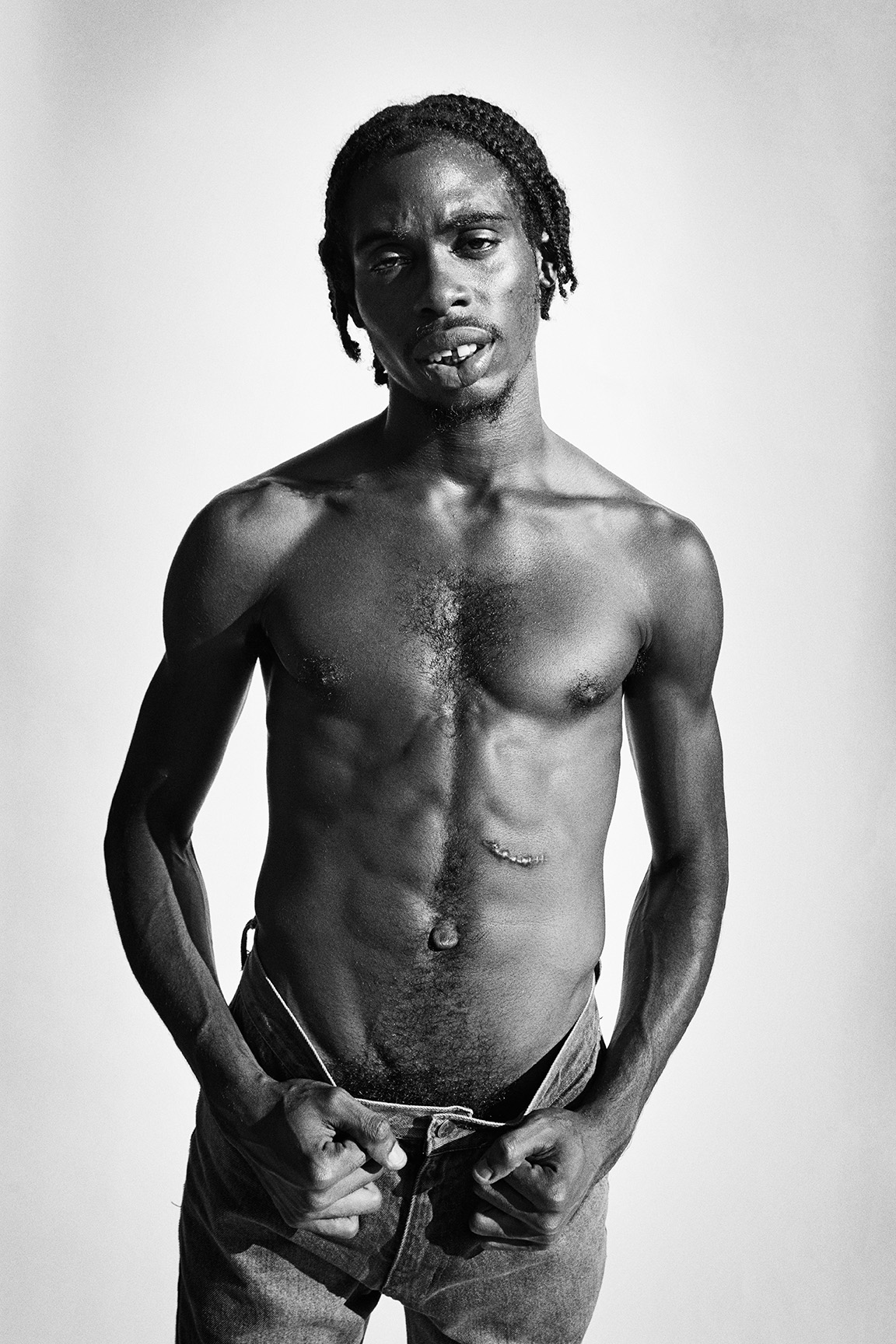
Froggboss
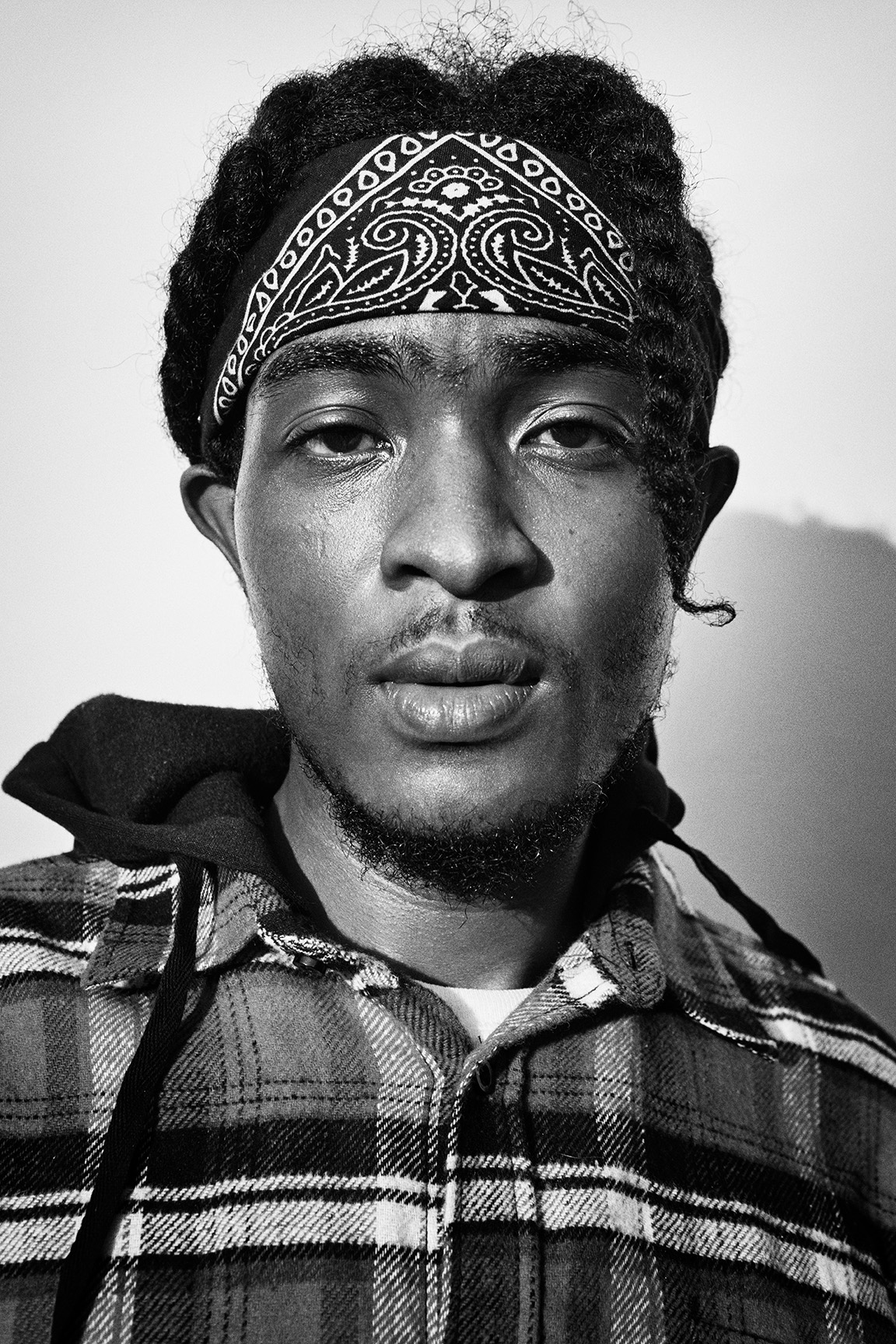
Beez Heightz
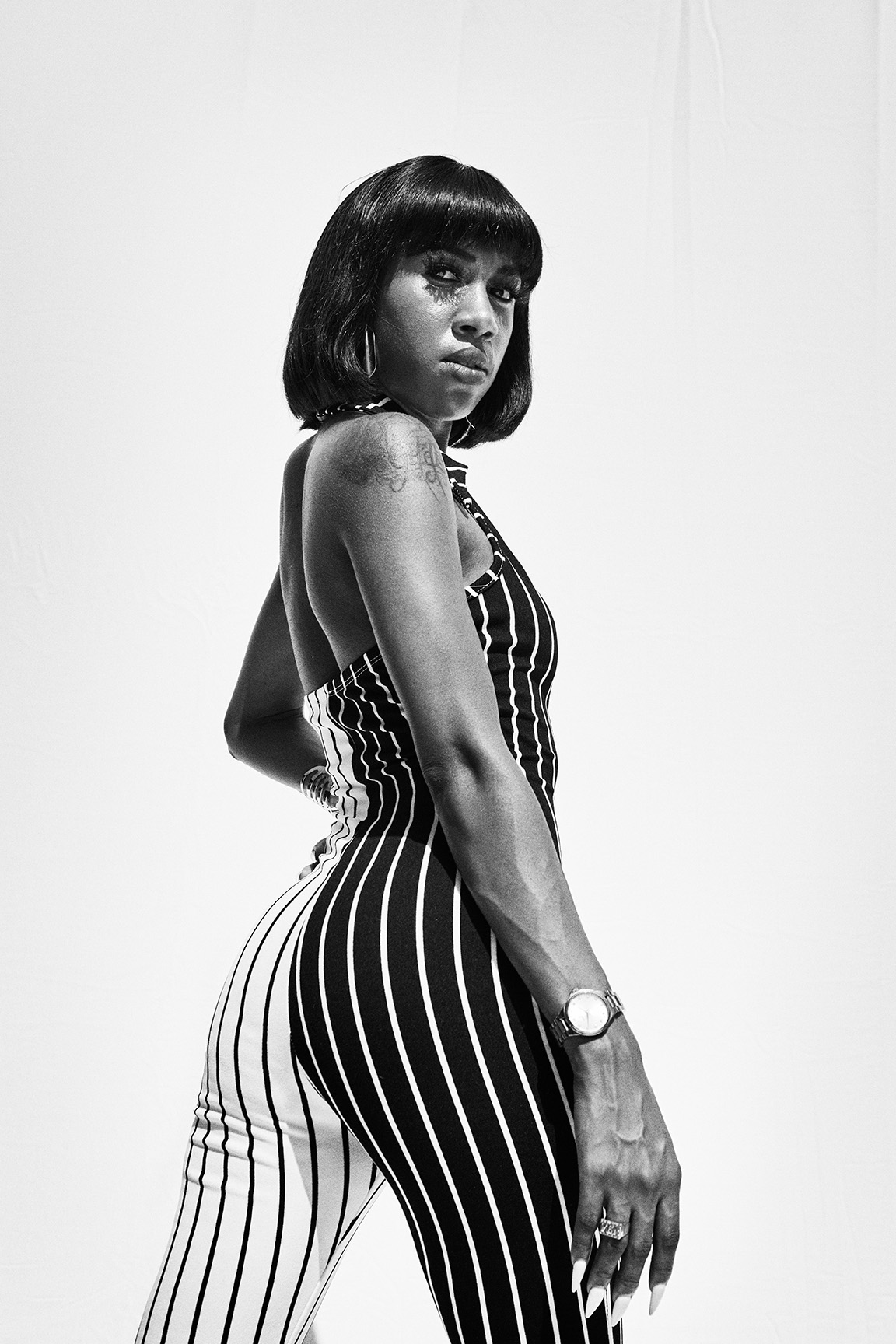
Vanessa Bling
Where did you grow up and how did it shape you? I grew up in Unity District, Jamaica. I wasn’t born into privilege, but my mother worked really hard to not only put me through school but to ensure that I had everything I needed to make it in this life. When somebody asks what kind of music you make, what do you tell them? I make music for the soul. Music with the ability to permeate through all cultures. How would you describe the music scene in Jamaica right now? Covid has put a dampener on things. We are used to performing in front of crowds and we haven’t done that in a while. How has 2020 influenced your work and creative process? Music for me is easy. All I have to do is hear a beat and I’m ready. What have you learned this year? Nothing lasts forever… except honey, lol. What are you hopeful about for 2021? A Covid-19 free world, hahaha! Hit songs, world travelling, performing in front of crowds again. I can’t wait. What’s the best thing about Jamaica? The music, the food, the environment, the people. Jamaica is the best.

Buju Banton
Where did you grow up? And how did you think it shaped you? I grew up in Kingston, Jamaica. I grew up all over Kingston, to be honest. How has it shaped me? I was exposed to what it means to work. I was exposed to the suffering of my people. The duality of existence that exists between the affluent and those who are not blessed in that regard. It helps to imbue in you a certain character. To do better. To grow up. To help your people. To change some of that dynamic that you saw. Can you describe yourself in four words? A God-fearing man. When someone asks you what kind of music you make, what do you tell them? I would say I make music to uplift, educate and stimulate the minds of the people, consciously provoke a thought that forces you to go within and do some introspection. What are you hopeful about for 2021? I’m not a man of hope, I deal with faith. You know what I mean? Faith in the people. Faith in humanity. Faith in one true and living God of creation. Faith that each man and each woman will question everything. Faith that the complicity that’s pervasive will one day be no more. Faith that to rule my people with fear, which is the greatest invisible weapon, will be extinguished. Faith that the people will have faith in themselves. Hope? We need faith man. God is good.

Dre Island
Can you introduce yourself? Greetings in the name of his Imperial Majesty, Jah Rastafari. I go by the name of Dre Island. Reggae artist that do inspirational music to uplift the whole universe. Where did you grow up and how did it shape you? A small community in Kingston, Jamaica. That community moulded me. It’s a musical community. When you wake up in the morning, you hear music – reggae or gospel or hip-hop. I grew up on music. Can you describe yourself in four words? Beautiful. Smart. Educated. Militant. When somebody asks what music you make, what do you tell them? I make music for everybody. Even the aliens. No limits and no boundaries. How has 2020 influenced your work and creative process? Life is beautiful, despite 2020 being a mournful one for a lot of people. We have to send our condolences, but 2020 is another stepping stone, another hurdle to jump. I’ve learned a lot about myself this year so bring on 2021, 2022, 2023, 2024, and beyond. We must never take life for granted, and cherish every moment, and cherish everybody you love. How has the sound of Jamaica evolved over your lifetime? I’m a part of that evolution. They say I’m not authentic reggae as they know it, but the message is authentic, I just fusion the sound. No divisions, no segregations. Reggae is a message and the music is always evolving. Give thanks for evolution, ’cause that is good and it is necessary. What is the best thing about Jamaica? That it exists. I don’t know what life would be without Jamaica. So I give thanks! Jamaica is the best thing in every way.
Credits
Photography and text Gray Sorrenti
Photography assistance Jared Zagha. Producer Layla Néméjanski c/o Hest Inc.
Casting director Samuel Ellis Scheinman for DMCASTING.
Casting assistance Alejandra Perez.
Models Beenie Man, 10Lox, Beez Heightz, Beres Hammond, Billy Mystic, NyaTafari Wilmot Cushnie, Icah and Ivah Wilmot, Blvk H3ro, Brushy One String, Buju Banton, Chronixx, Dre Island, Quada, Froggboss, Jaz Elise, Jesse Royal, Ken Boothe, Khori Valentine, Koffee, Burro and Leno Banton, Lila Iké, Popcaan, Projexx, King Jammy, John John, Protoje, Ronald Hastings, Sean Paul, Sevana, Shaggy, Shama Beckford, Shenseea, Skillibeng, Stalk Ashley, Tommy Lee Sparta, Vanessa Bling and Yellowman.
All clothing models’ own.
This story originally appeared in i-D’s Utopia in Dystopia Issue, no. 362, Spring 2021. Order your copy here.
